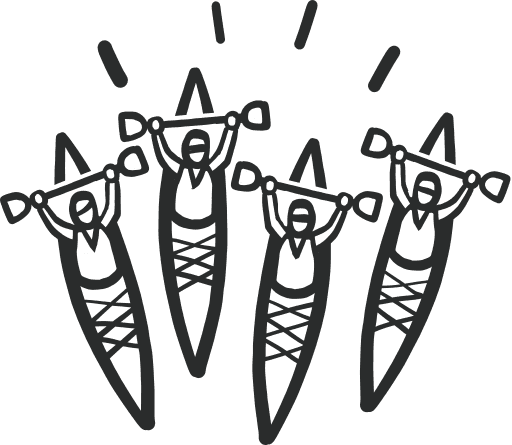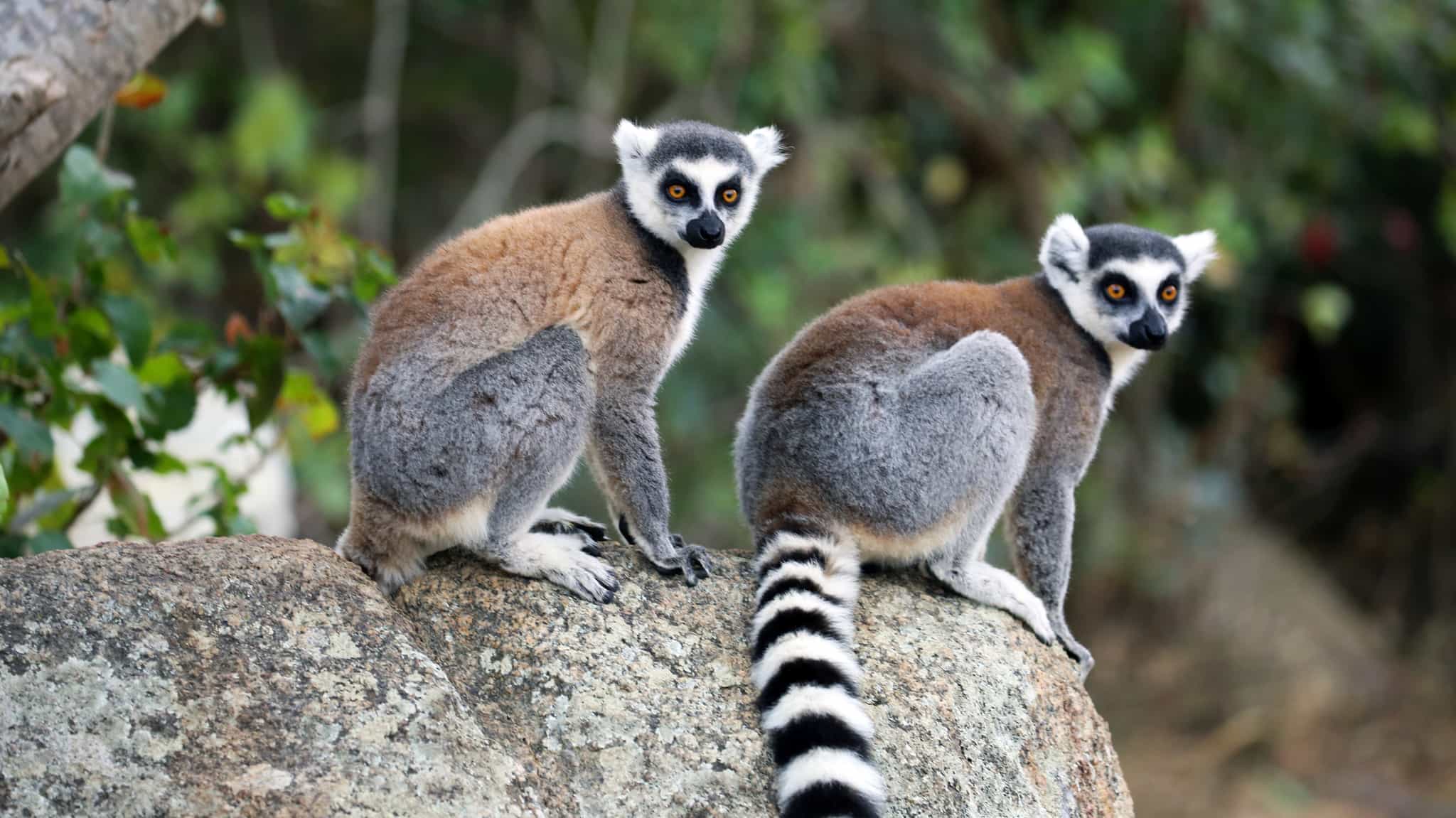
Trek the Remote Trails of Madagascar
Get off-grid on this truly remote ramble, hiking through two of the wildest national parks on the extraordinary 'Great Red Island'
What's Included?
Activities & Certified Guides
All itinerary activities with expert, local, English-speaking trekking guidesAll accommodation
5 nights camping, 5 nights in hotels, 2 nights in village bungalowsMeals
All breakfasts, 6 lunches, 8 dinnersInternal Flights & Transfers
Internal flight from Antananarivo to Tulear; all airport and local transfers throughout the tripEquipment, Porterage & Permits
Twin-share expedition tents; porters during the treks; entrance fees for the National Parks and the private reservesSmall Like-minded Groups
Solo-friendly by design, join our small n’ sociable groups of up to 12 like-minded, active and outdoorsy people…
…
What's it like?






























Trek and wild camp through the otherworldly canyons, plains, forests and peaks of the Isalo and Andringitra National Parks
Hike and scramble to the summit of Madagascar's second-highest mountain, the imposing Pic Boby (2658m)
Eyes peeled for lemurs, the island’s most famous residents – from ring-tailed and red-fronted browns, to tiny mouse lemurs
Key Information
Day 1
Welcome to Antananarivo
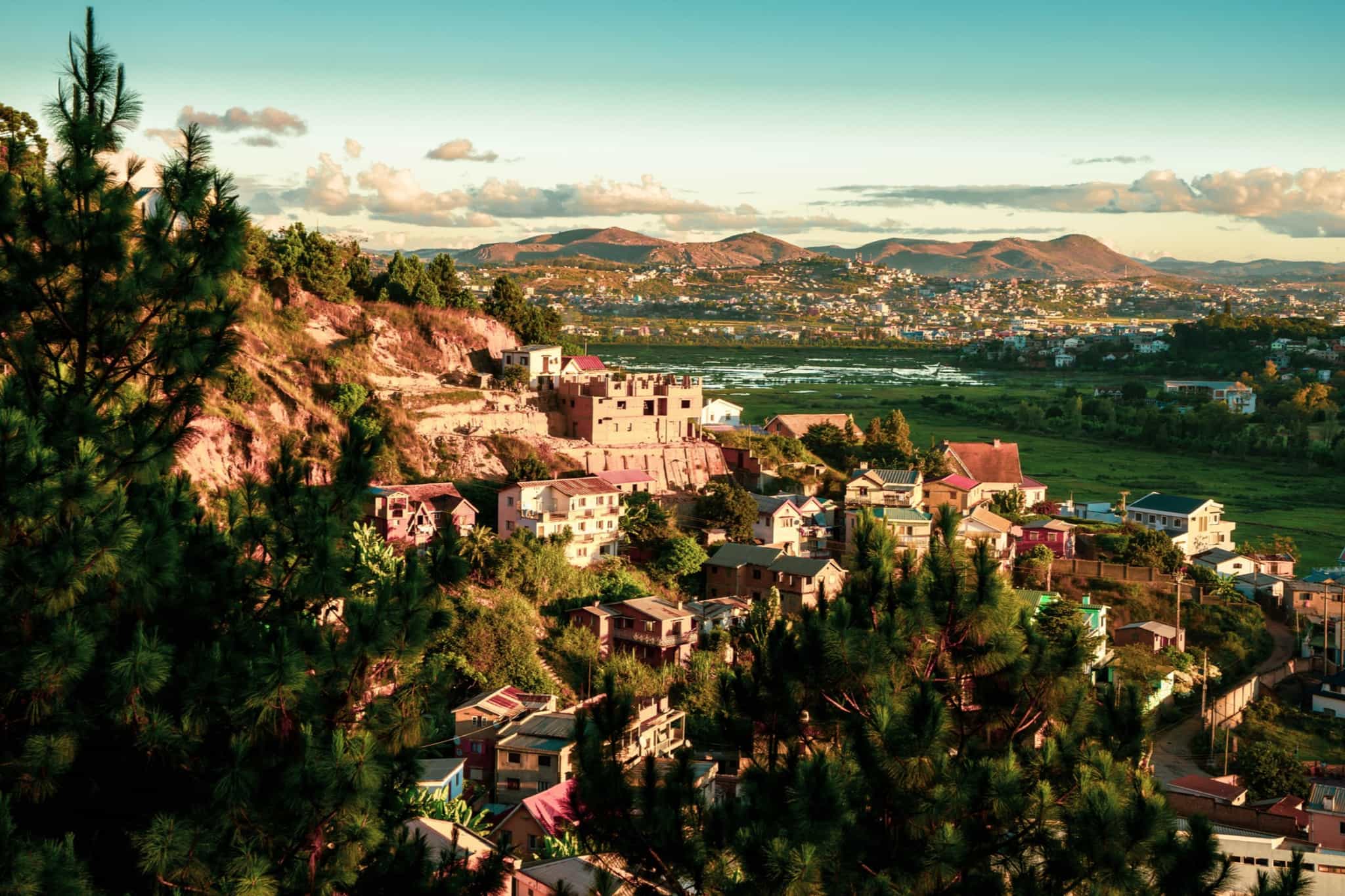
Touch down in Madagascar's capital, affectionately known as Tana, meet your host at the airport and transfer across the city to your hotel. Meet up with your fellow adventurers for dinner and a chat through the adventure to come.
Day 2
Make your own chocolate, then head south
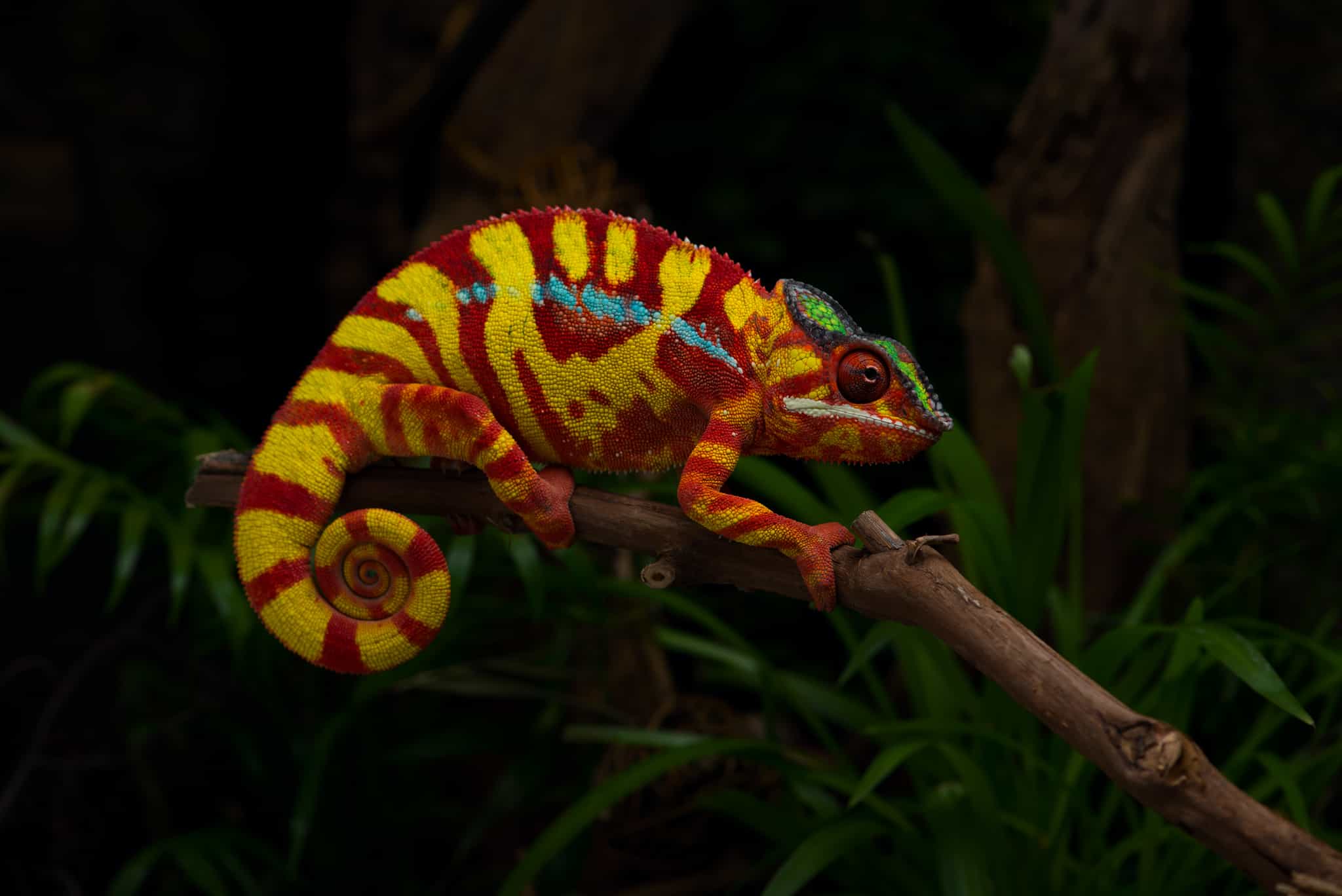
Hiking
This morning you will enjoy a morning getting hands-on with one of Madagascar's most famous exports: Malagasy cocoa. Your host has their own kitchen in Tana, which you'll head to for a workshop with a chef where you'll make your own chocolate bars using the revered cocoa and unique Malagasy spices. Later on in the afternoon, you'll be hopping on a flight to reach Tulear (Toliara) as the sheer size of Madagascar means that taking a domestic flight is common on many trips here. Tulear (Toliara) is 1000km south on the western coast, and your gateway to reach the two national parks that you'll be trekking through. Warm up for your trek with a night walk tonight at Antsokay Arboretum, getting your first glimpse of Madagascar's native plant and wildlife, including the tiny nocturnal mouse lemur and the enigmatic chameleon.
Day 3
The trekking begins
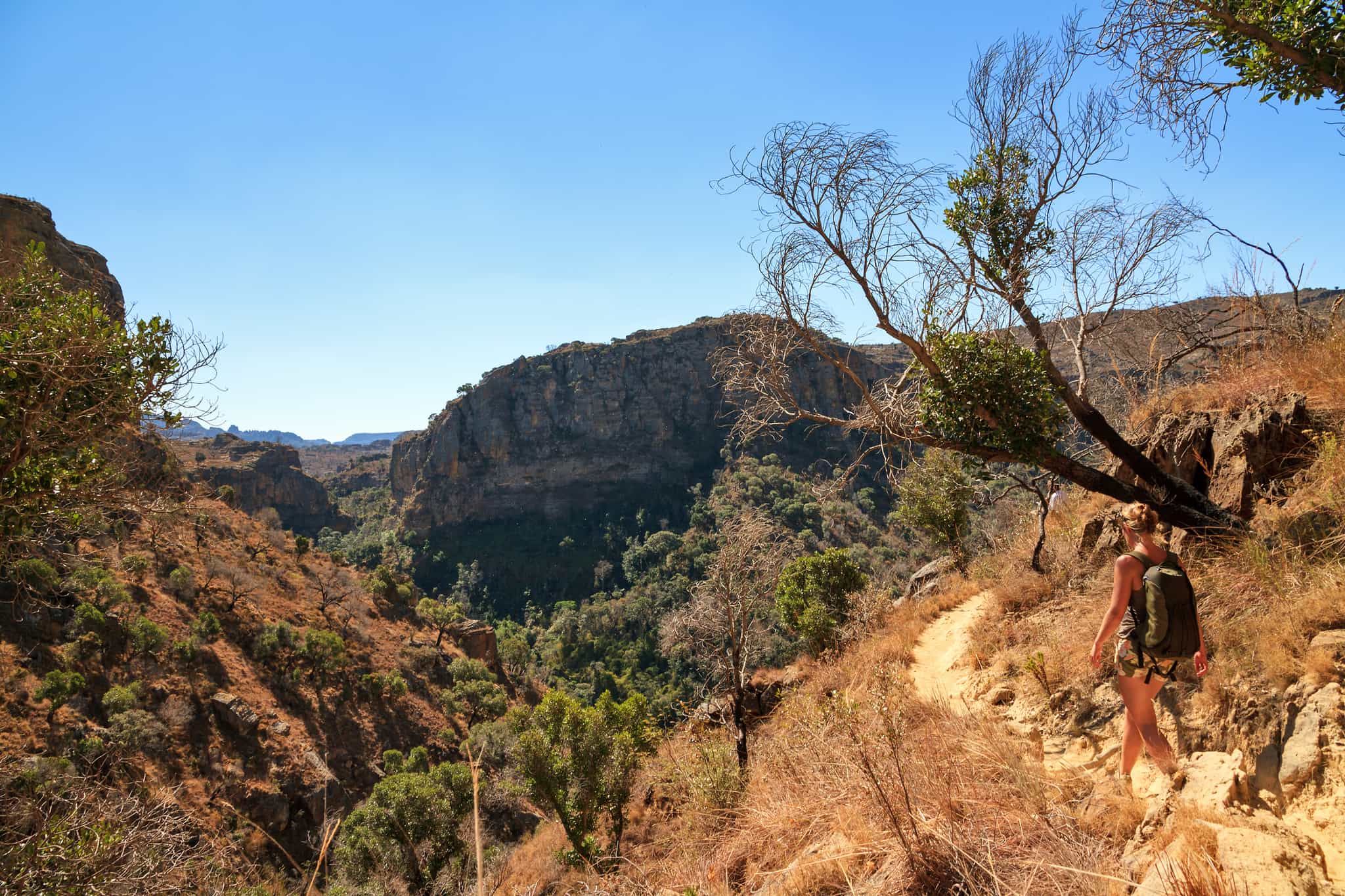
Hiking
Driving
Wake up early and hop in the van for the drive from Tulear (Toliara) to Ranohira, the gateway to Isalo National Park and the starting point for your two-day trek through this remote region. The trail winds through a stunning landscape of towering sandstone formations, deep canyons, winding rivers and lush greenery. You will stop for a picnic lunch in a scenic spot surrounded by endemic plants and trees – with plenty of chances to spot your first wild lemurs of the trip. Camp out beneath mango trees for your first night beneath the stars in Madagascar.
Day 4
Trek to Isalo's natural swimming pools
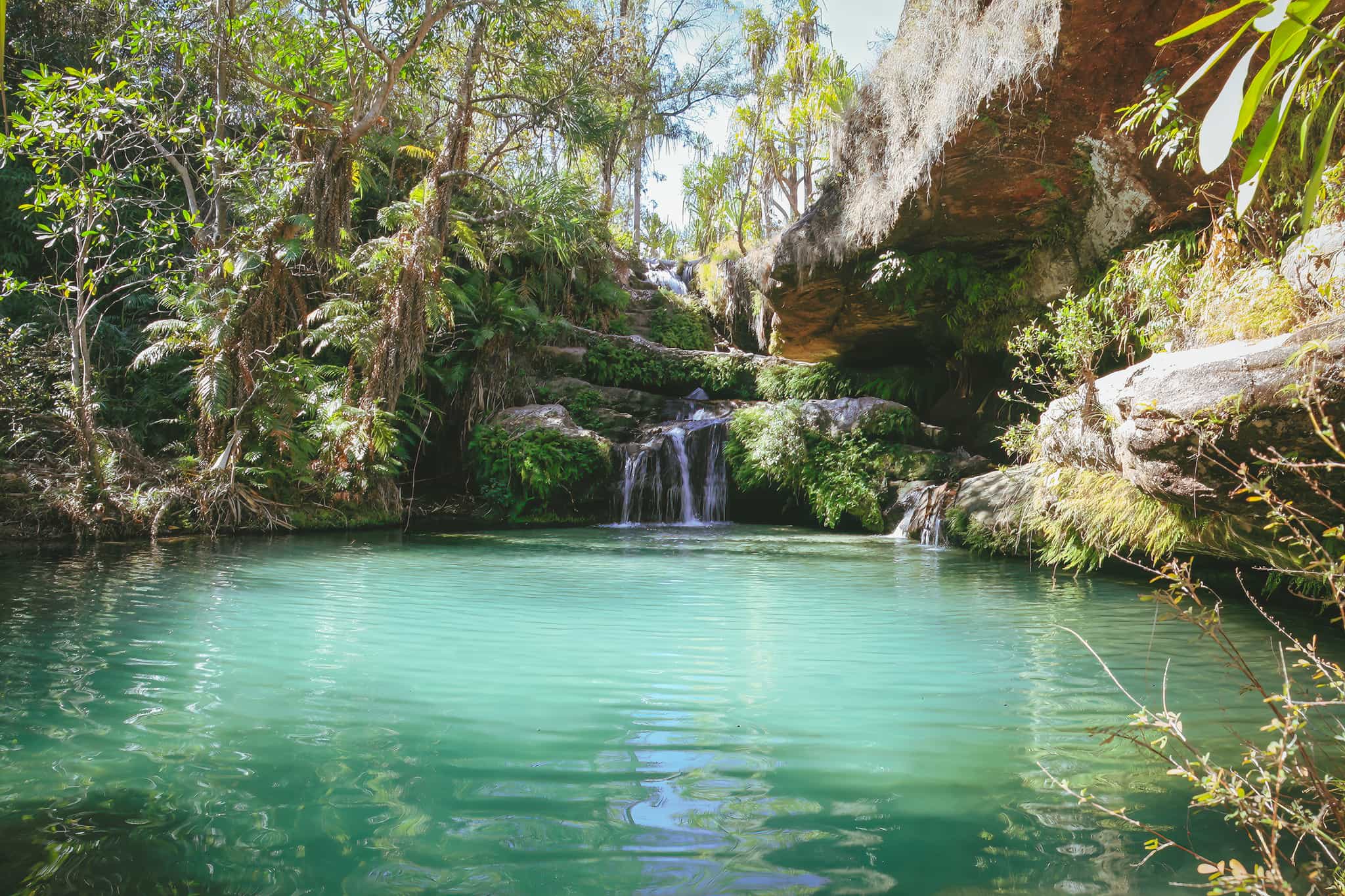
Hiking
Roll out of the tent at sunrise to see the morning sun illuminating the Isalo massif before hitting the trail, reaching a forest at the foot of the cliffs that is home to unmistakable ring-tailed lemurs and the agile white sifakas. Trek deeper into the canyon between the towering walls, winding to reach the summit of the Isalo ridges giving a clear panorama to the north. After six hours of trekking through an evolving landscape of colours and textures through the heat of the day, you're rewarded with the most beautiful of Isalo's natural swimming pools. Take a well-deserved swim and enjoy sunset, before dinner at the next camp spot.
Day 5
Namaza River and the Nymphs Waterfall
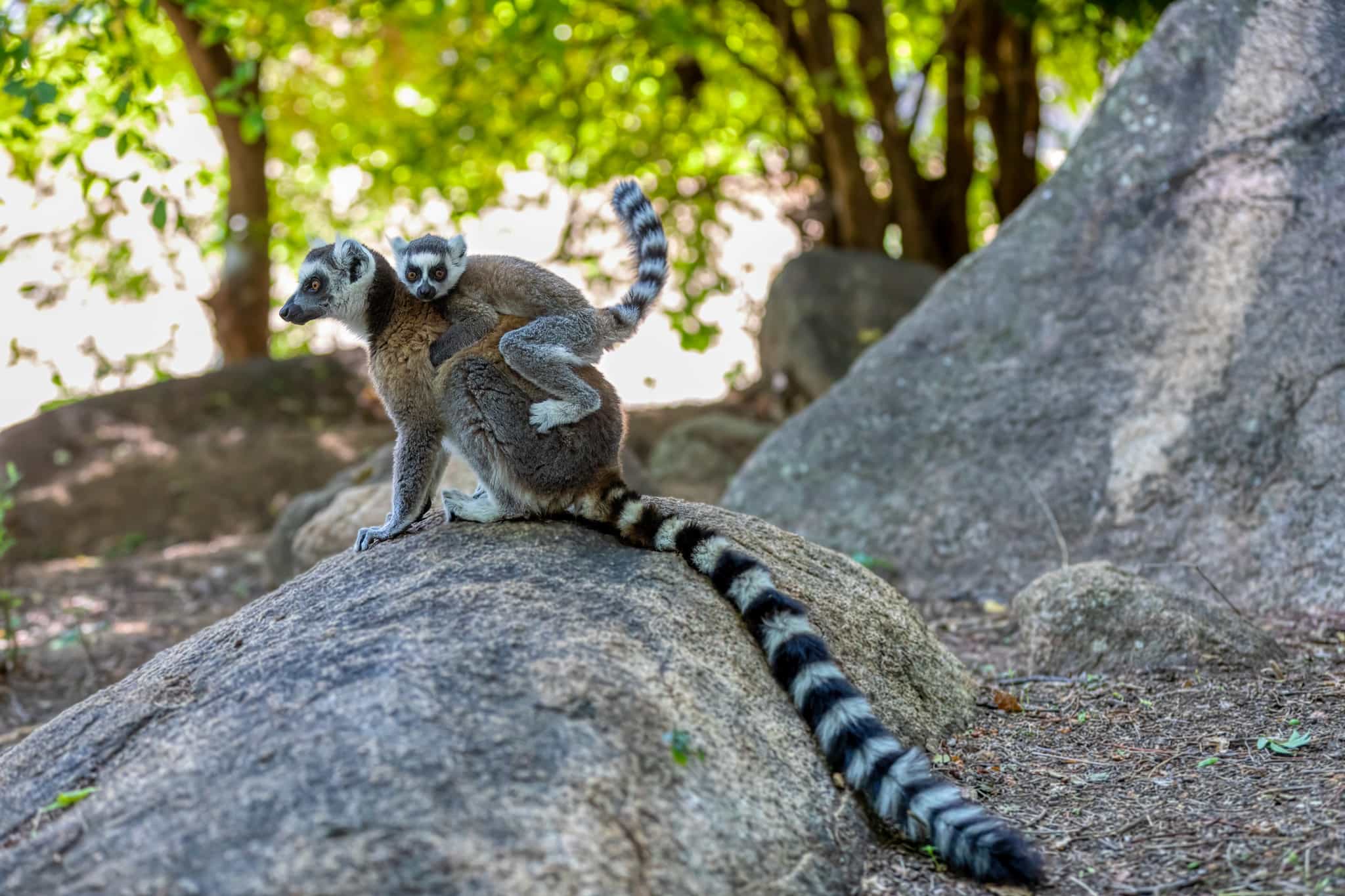
Hiking
Driving
Tuck into breakfast at your final camp spot in Isalo, pack down camp and trek out of the park, traversing a plateau resembling a classic African savannah. Descend a steep valley on a well-maintained trail to reach the forest-flanked Namaza River, hiking along the river with yet more lemurs in the canopies for company, until you reach the Nymphs Waterfall. The trek winds down as you arrive back at Ranohira, where you'll hop back in the van for the onward drive to the village of Ambalavao. Spend the night in bungalows in a beautiful spot, enjoying a comfy bed and shower conveniently wedged in between the two trekking and camping sections of your trip.
Day 6
Camp Catta and the Sacred Forest
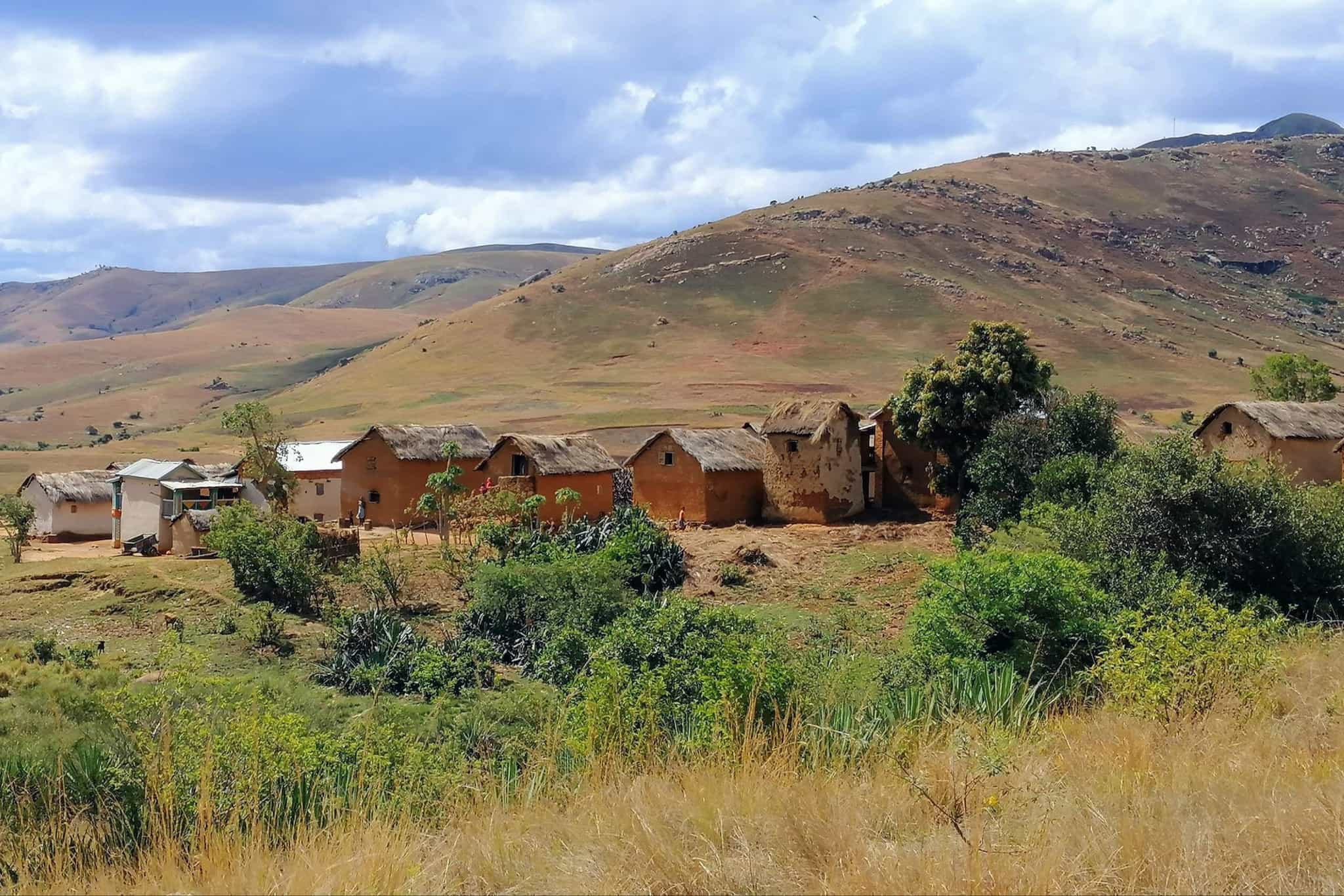
Hiking
Awake at Camp Catta and take in the stunning views of the Tsaranoro cliff. After the last few days of trekking, you'll spend a relaxed morning exploring the sacred forest in the Tsaranoro Valley, and visiting a typical Bara village. In the afternoon, you're free to chill in preparation for the next trek – Camp Catta has a beautiful eco-pool to cool off in and offers incredible views of Andringitra National Park.
Day 7
The Andringitra trek begins
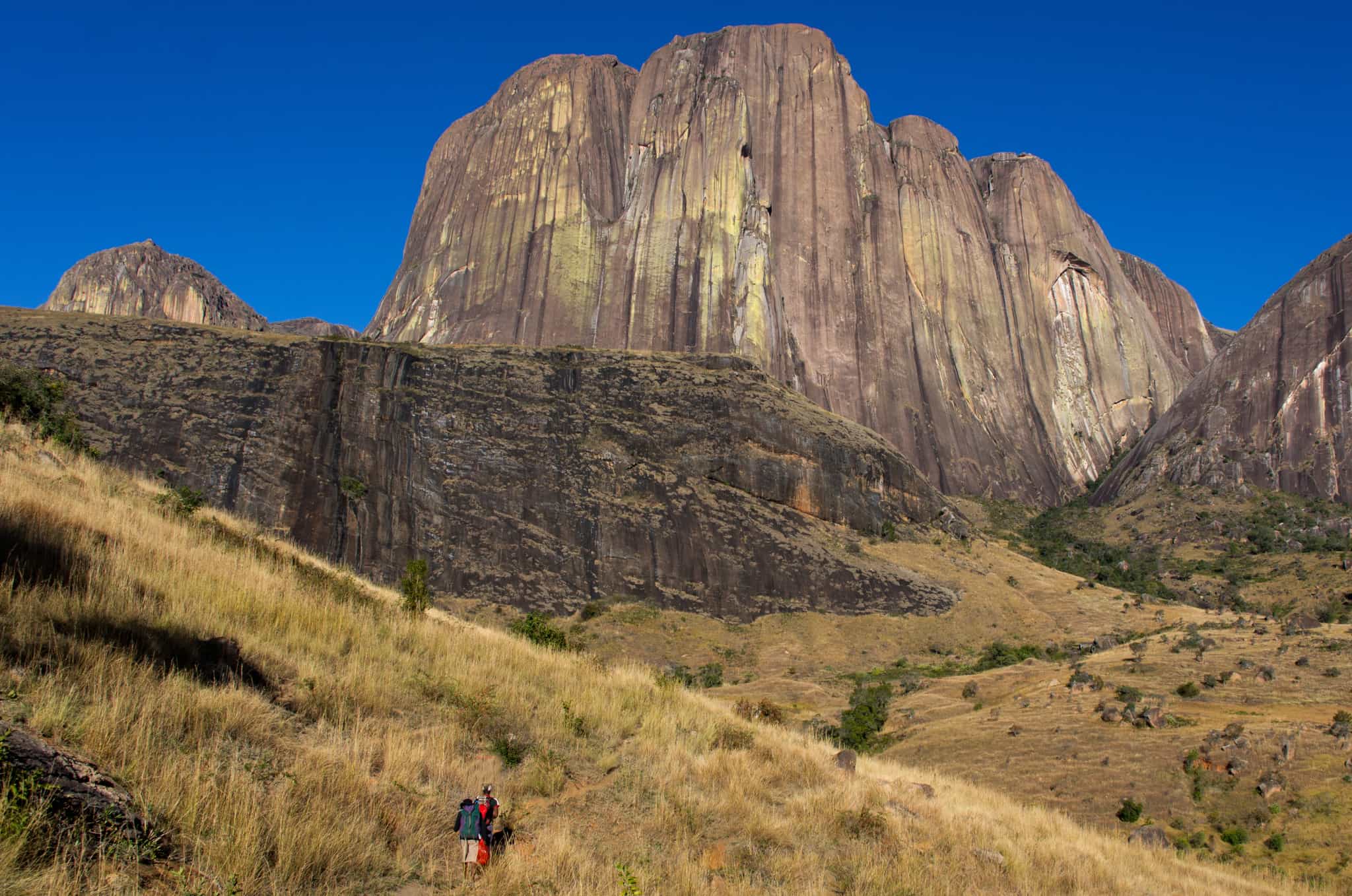
Hiking
From one trek straight to another, you'll drive into the Tsaranoro Valley through some stunning highland landscapes, to reach the trailhead for the hike into the Andringitra National Park. Start the climb to the Andringitra Massif with the majestic Tsaranoro cliff towering in the background, and after a few tough hours you'll have lunch and cool down with a swim in the river. Continue through a lunar landscape nicknamed 'Diavolana' ('moonlight' in Malagasy) until you reach the Andranolava campsite, beside a river at 1965m. Tonight's campout at this altitude will be colder, so wrap up and settle in ahead of summit day tomorrow.
Day 8
Summit Pic Boby (2658m)
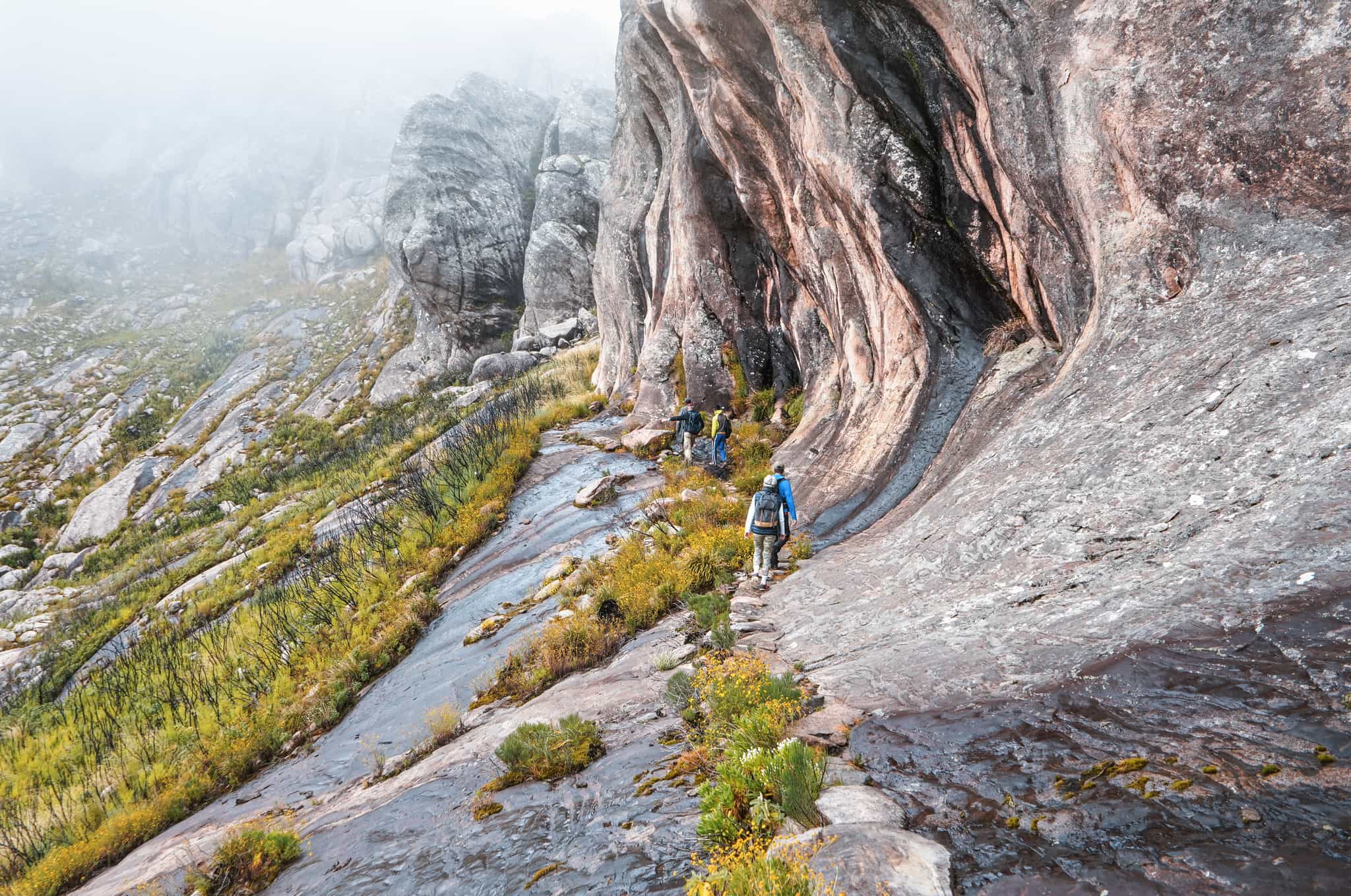
Hiking
Pic Boby is the star attraction of Andringitra National Park and Madagascar's second-highest mountain at 2658m, which you'll be summiting today. An early morning start with an hour of gentle hiking through the Andohariana plateau will lead you to the foot of huge granite cliffs, marking the start of the ascent to Pic Boby. After two and half hours of steady hiking and some rock scrambling, you'll be stood at the summit taking in a full panorama of the entire region. In very good weather, you can even see the Isalo massif, which you trekked through a few days ago. Descend from the peak via the same route, continuing along the foot of the cliffs back to the campsite to enjoy the rest of the afternoon by the river, where you can relax and recover from your summit exploits.
Day 9
The final stretch
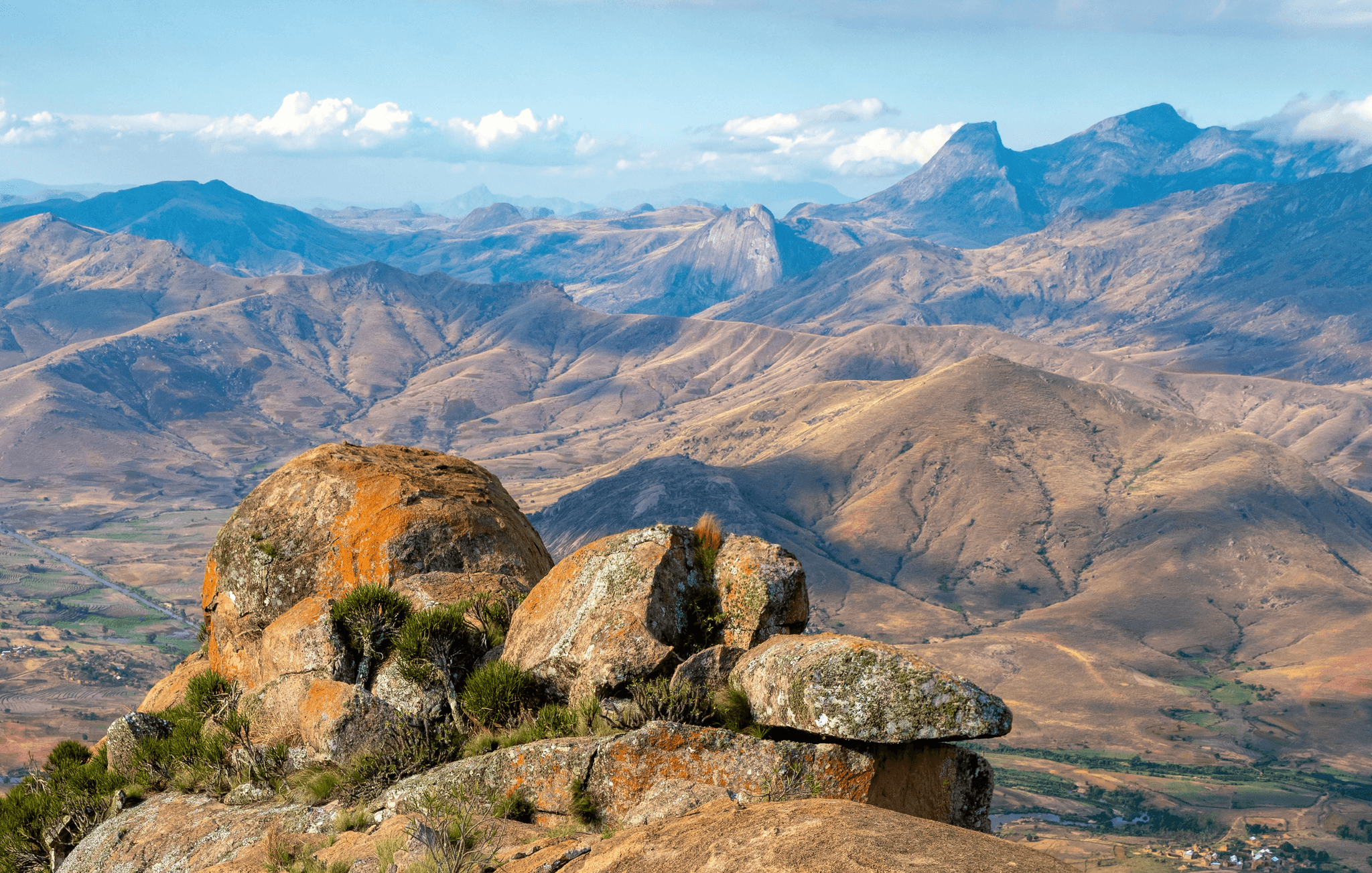
Hiking
Roll out of the tent to the first rays of sunlight coming down the cliffs and the plateau, tuck into breakfast and set off toward the Namoly Valley, passing waterfalls and taking in the stunning landscape of the Andringitra Mountains. Your hike today passes through past crystal-clear streams with opportunities to swim before tackling some steep inclines. You will spend your final night camping in the Madagascan wilderness at a picturesque campsite surrounded by the natural beauty of this remote area.
Day 10
Road trip to Fianarantsoa via a lemur reserve
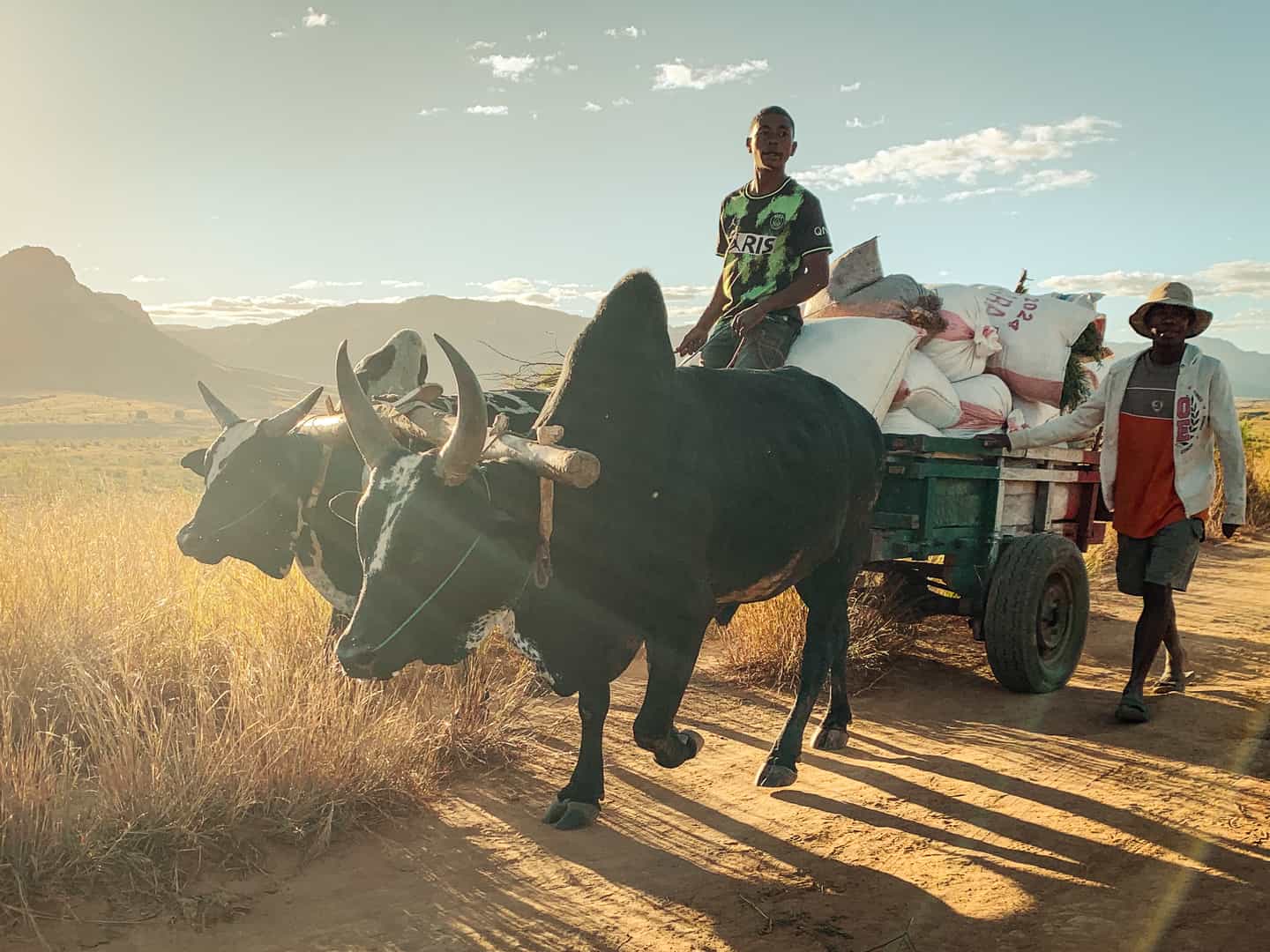
Bush Walking
Driving
Leaving the campsite, a short walk takes you to the village of Sendrisoa which is is a Malagasy rural commune located in the south-eastern part of the Haute Matsiatra region. Here you bid farewell to this wonderful place as you begin the drive back to civilisation. Given the poor condition of the road the going is slow, but this confirms the sense of remoteness that comes with the trek you've just completed in this region. You'll make a short detour for a hike through Anja Park, a community-run reserve famous for its ring-tailed lemurs. Continuing on the journey, you will stop at villages en route for a glimpse into rural Malagasy life, before coming to Fianarantsoa where you will spend the night.
Day 11
Colours and cultures of Madagascar
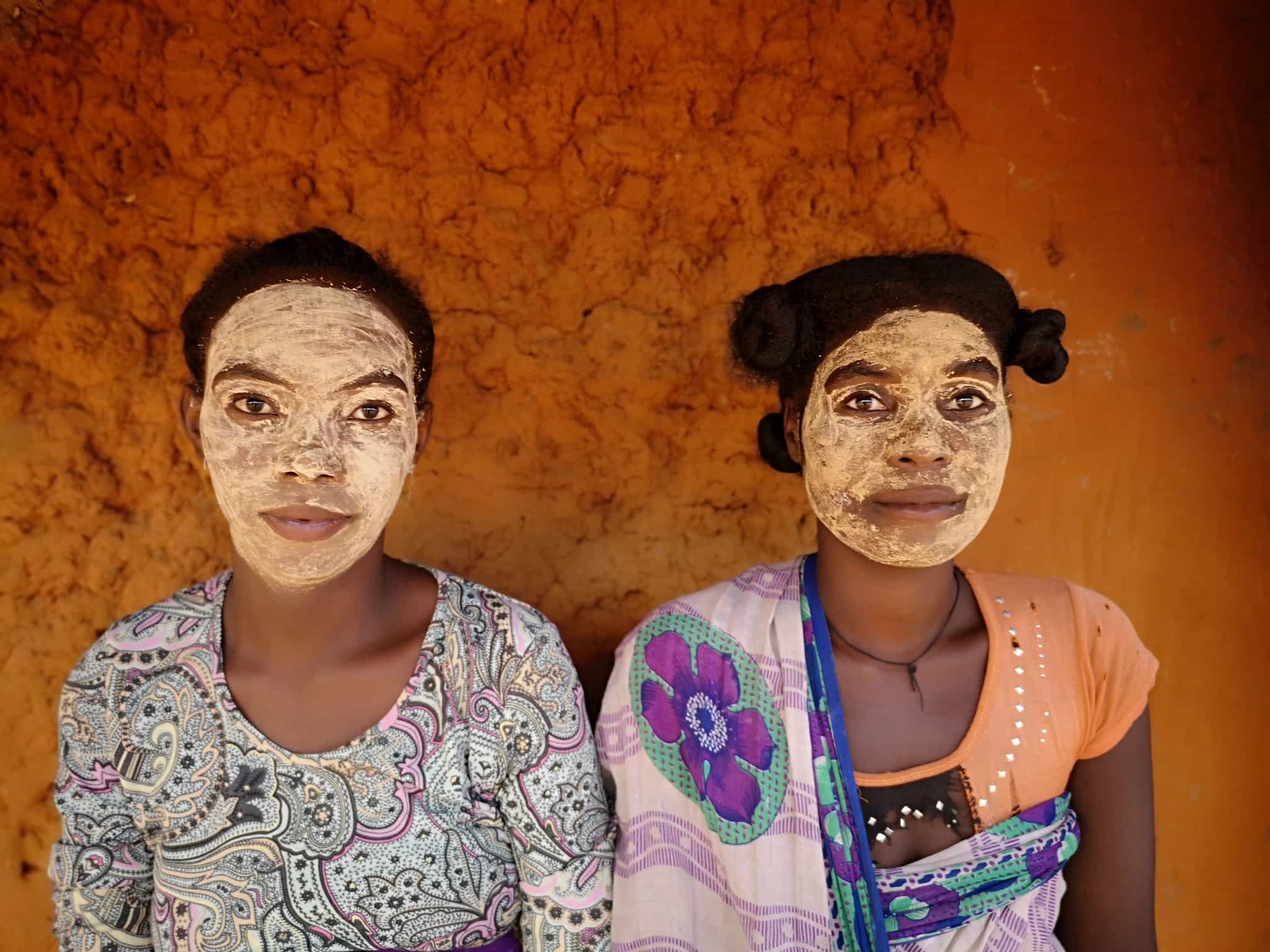
Driving
After a week in the wilderness, it's time to see the other side of life in Madagascar as you eat into the multi-day journey from your trekking spot to the capital. Road travel is slow in Madagascar due to the fluctuating quality of the roads, but this provides a great opportunity for an insight into life here. On your road trip today, you'll pass through charming villages showcasing local life and traditional architecture, including Ambositra – renowned for its woodcarvers and vibrant handicrafts, as well as the stunning highland landscapes with grasslands and volcanic formations. Eventually, you'll reach Antsirabe: the third-largest city in Madagascar is known for its colonial charm, thermal springs, and colourful pousse-pousse (a type of rickshaw). Enjoy some free time here to explore in the late afternoon and evening before bunking down in a cosy hotel.
Day 12
Explore Antsirabe on two wheels
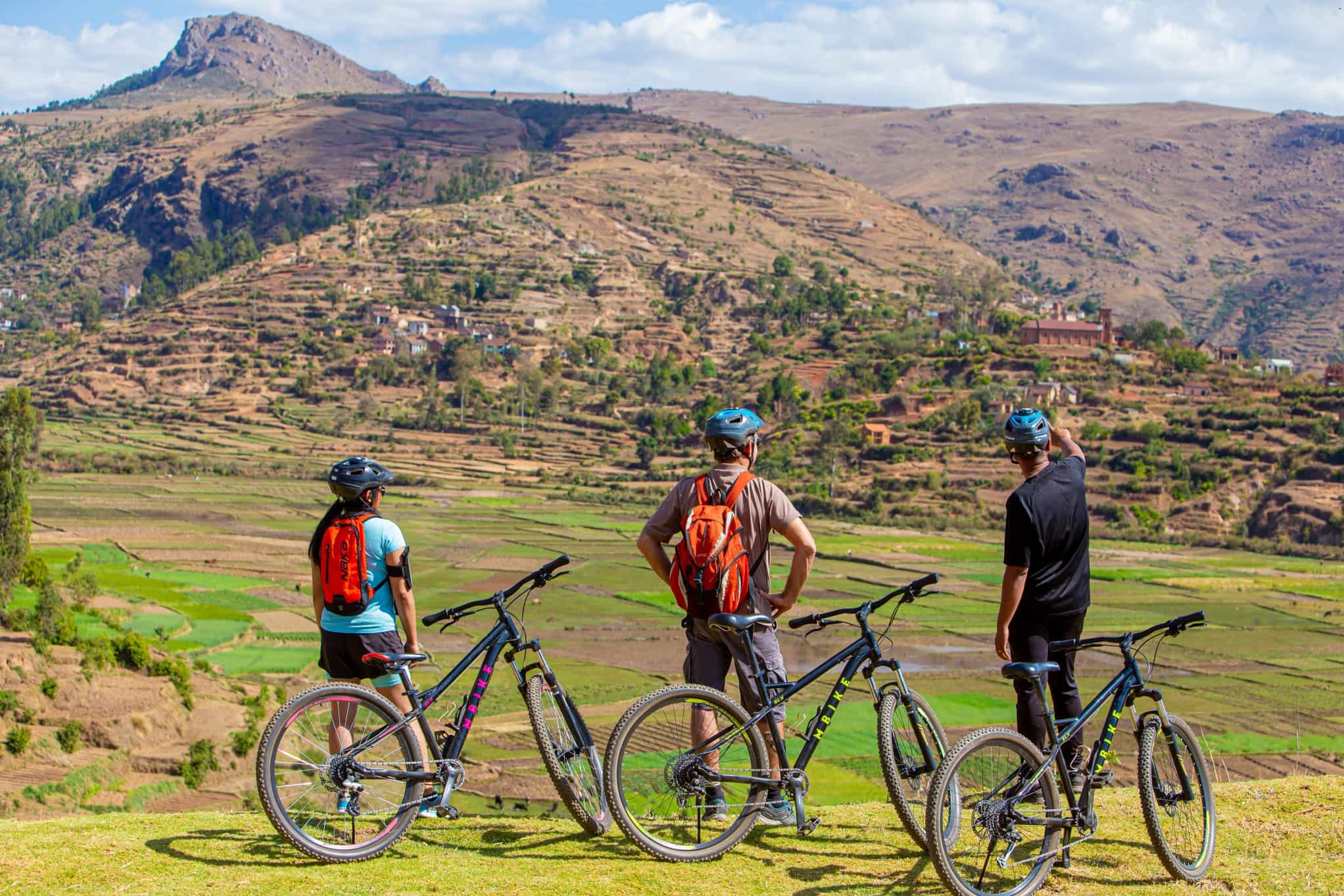
Cycling
Driving
You'll have a chance to stretch your legs again this morning before the final stretch of driving to the capital later. Hop on a mountain bike to explore Antsirabe and its rural surroundings as you pedal through the town's charming streets, past colonial architecture and out into the countryside. Pedalling mostly off road on rough tracks, you will roll through lush, green hills and past traditional Malagasy villages, stopping to buy local foods and learn insights into the unique local culture and way of life here from your guide. Tuck into lunch at a local restaurant before it's time for the drive back to the capital, Tana.
Day 13
Farewell Madagascar
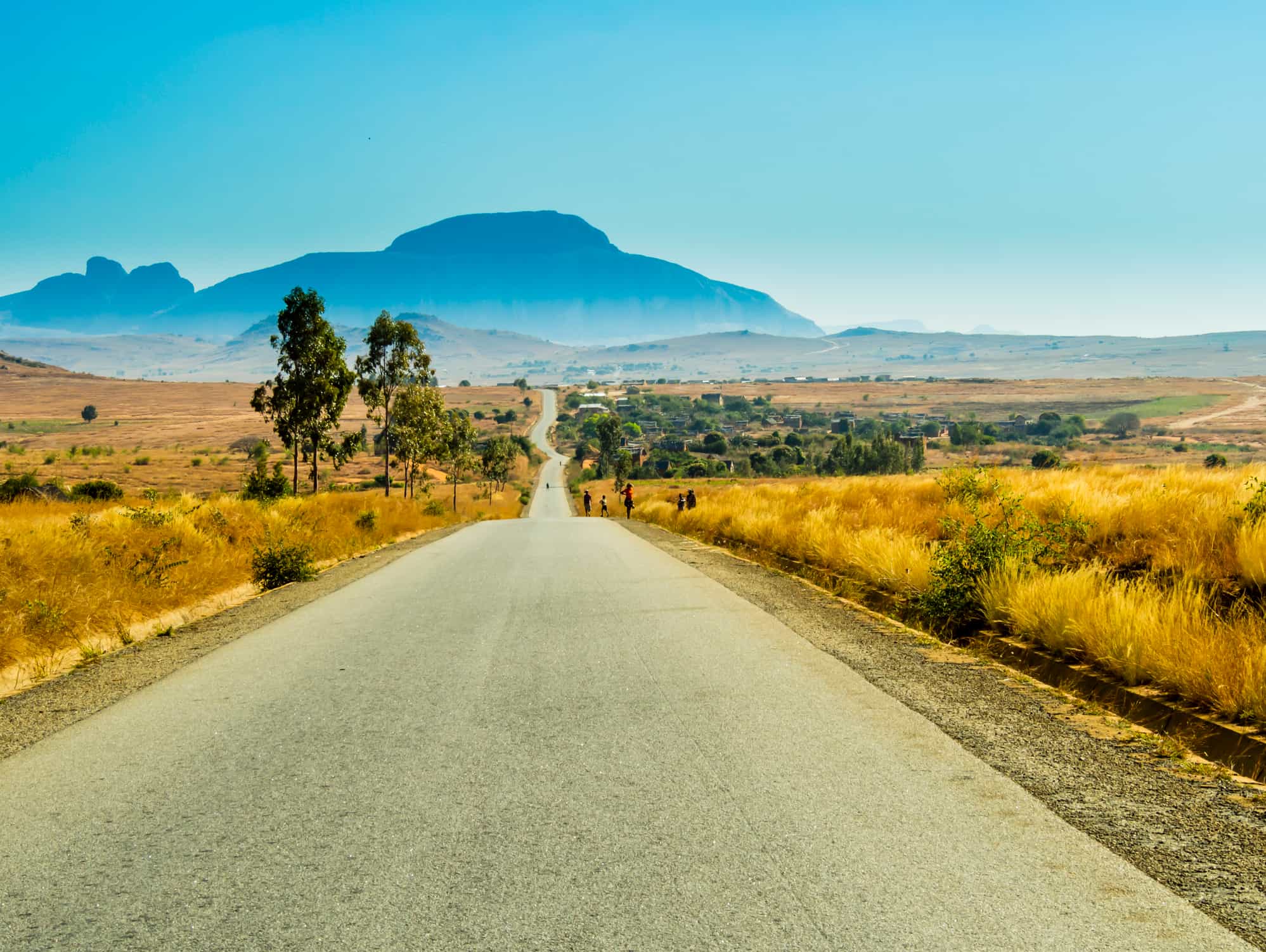
No need to rush to the airport on your final day today, as all flights depart in the afternoon and evening. The day is yours to explore Tana and perhaps grab one last lunch together, before your host transfers you to the airport for your onward flight.
The Area
Logistics
Starts
Ivato International Airport, Antananarivo
Any time on Day 1
Ends
Ivato International Airport, Antananarivo
13:00 on Day 13
Transfers
Your host will meet you on arrival at Ivato Airport in Antananarivo on Day 1 and transfer you to your hotel in Madagascar's capital city. On Day 13, your host will transfer you back to the airport in the afternoon, in time for any onward flights in the evening.
If you are arriving before Day 1 or departing later than the times described above on the final day of your trip, your host can arrange private transfers for you upon request (please see the optional extras section for prices).
Travel options
There are direct flights to Ivato International Airport in Antananarivo from Paris, Nairobi, Addis Ababa, Johannesburg and Mauritius. For travellers from the UK, US and other major hubs in Europe, you can take a direct flight to any of the aforementioned hubs and transit there for the flight to Madagascar.
Day 1
Breakfast
Lunch
Dinner
Day 2
Breakfast
Lunch
Dinner
Day 3 – Day 4
Breakfast
Lunch
Dinner
Day 5 – Day 6
Breakfast
Lunch
Dinner
Day 7 – Day 9
Breakfast
Lunch
Dinner
Day 10
Breakfast
Lunch
Dinner
Day 11
Breakfast
Lunch
Dinner
Day 12
Breakfast
Lunch
Dinner
Day 13
Breakfast
Lunch
Dinner
What is the food like?
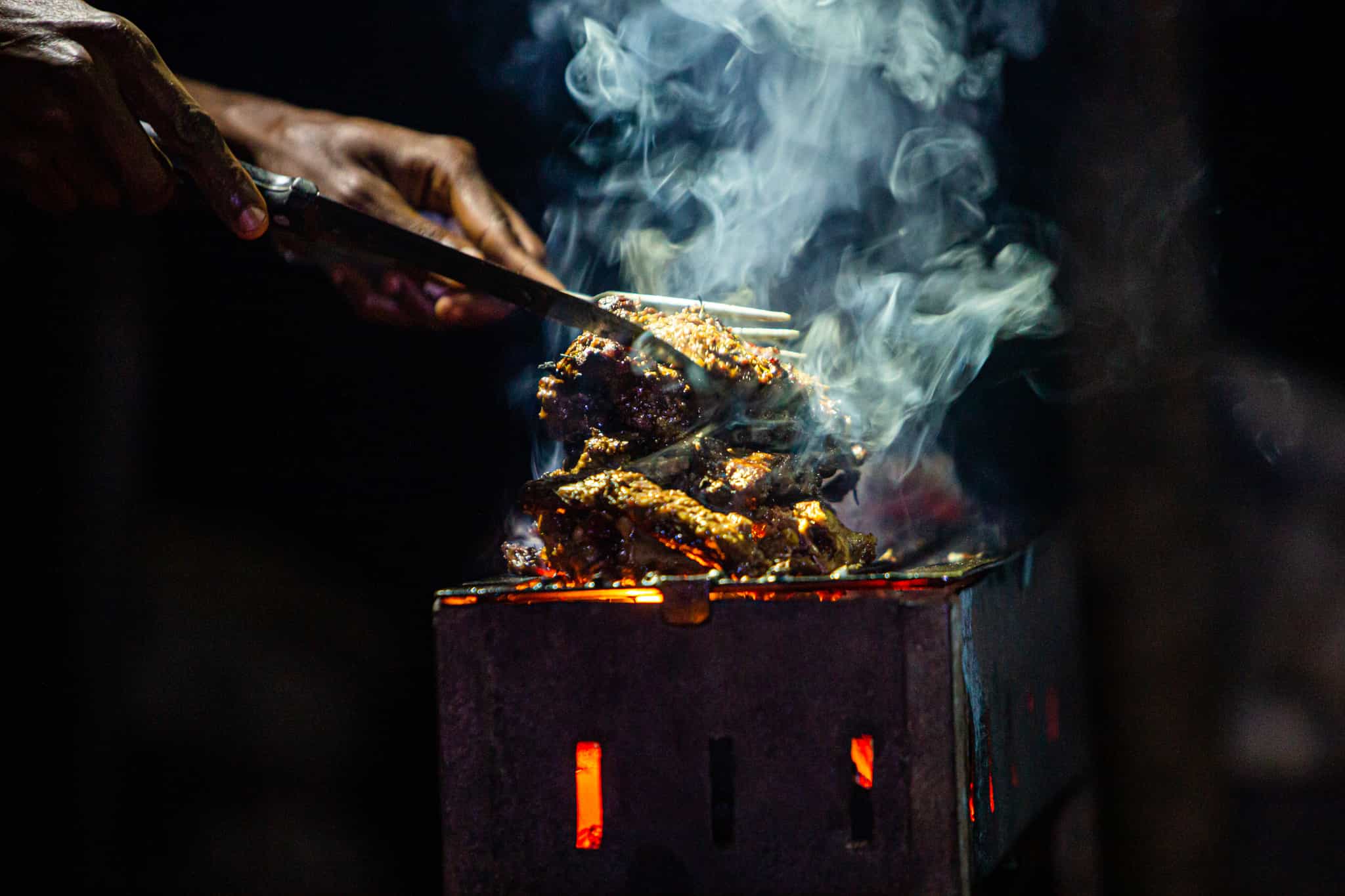
Malagasy cuisine is a result of the island's diverse cultural heritage, which includes African, Arab, Indian, and French influences. The traditional Malagasy diet primarily revolves around rice, meat, fish, vegetables, green leaves, and tropical fruits – including mangoes, lychees, pineapples, papayas, and bananas, to name a few. Rice is the staple food of Madagascar and forms the basis of most meals. It is typically served with various accompaniments such as chicken, zebu (a type of cattle), pork and river or sea fish. In urban areas, you can find a variety of street food options. These include samosas, masikita (grilled skewers of zebu), and various fried snacks and soups. On the treks, meals will be prepared for you by a cook. Breakfasts are substantial and include hot drinks (tea, coffee and hot chocolate), fruit juice, bread, jam, honey, cheese and eggs; lunches are cold picnics with sandwiches and seasonal fruit; dinner is a hot meal with a starter, main course and dessert.
Vegetarians can be catered for on this trip, however vegetarianism is not part of the Malagasy culture and as such, the options can be of a limited nature compared to what vegetarians are used to in the Western world. Please advise of any dietary requirements in advance using your passenger info form. Please note that unfortunately, Halal and gluten-free diets cannot be accommodated on this trip.
What is the accommodation like?
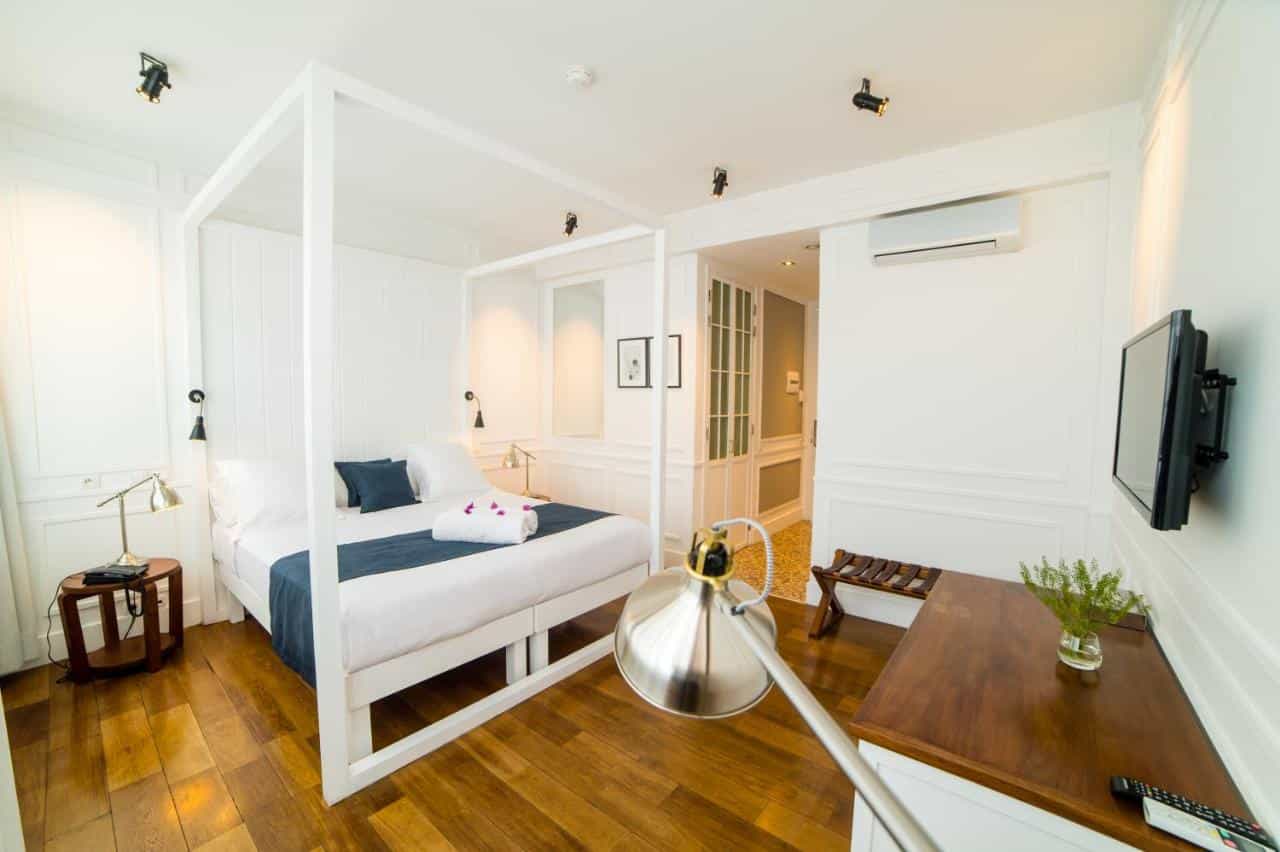
Antananarivo (Tana)
You'll spend the first and last nights of the trip in the Madagascan capital city of Antananarivo (known locally as Tana). The 4-star Grand Hotel Urban is just a short walk from the city's Ambohijatovo Garden. The elegant rooms have city views, air conditioning, satellite TV and a safety deposit box. Hairdryers are available. An a la carte breakfast is offered daily. The hotel has a wellness area for massages and beauty treatments, and it also offers laundry services, currency exchange and a concierge.
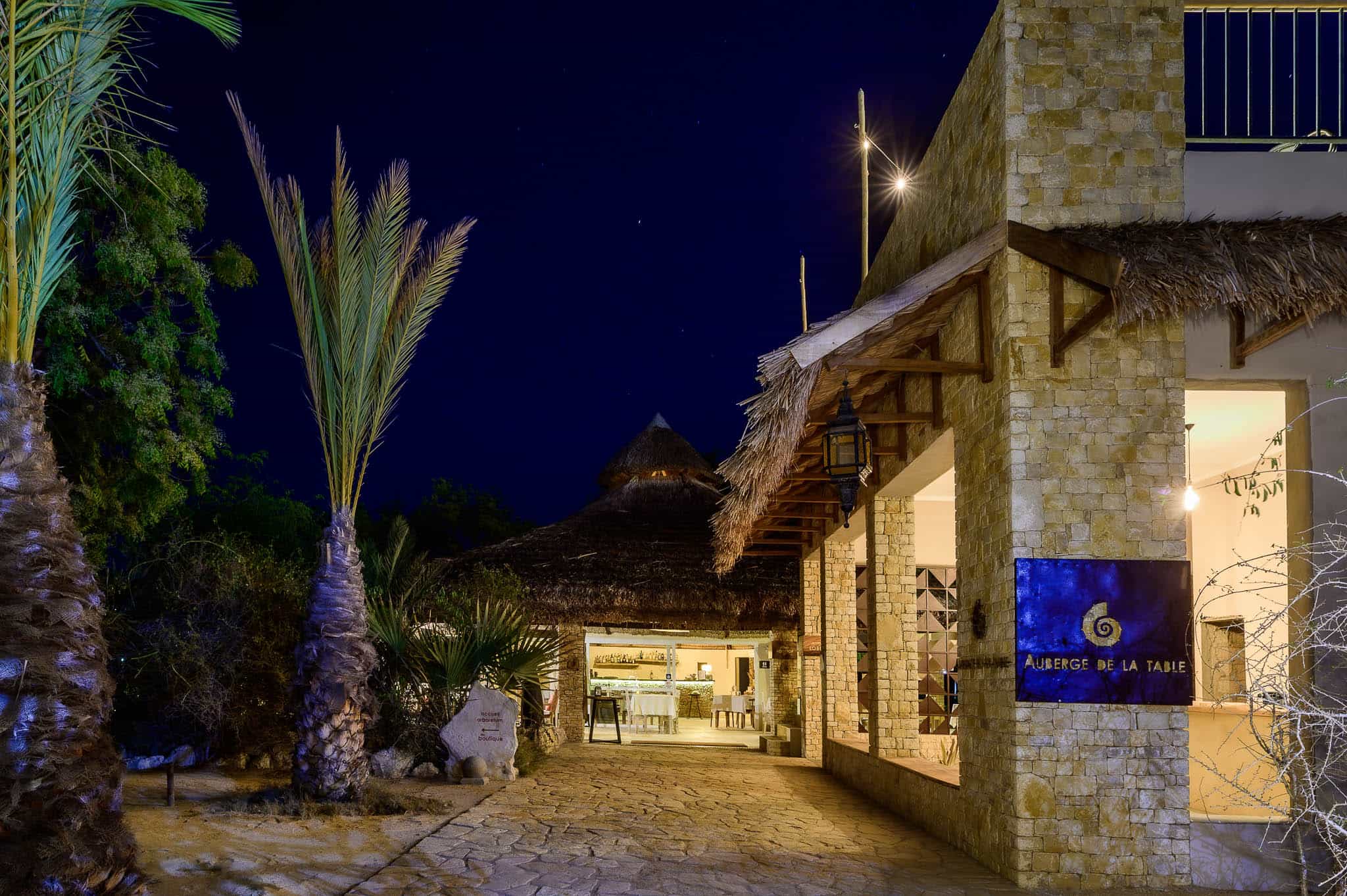
Tulear (Toilara)
On the second night of your trip you'll stay at the Auberge de la Table in the south of Madagascar, a collection of bungalows built authentically with local materials amidst the natural beauty of Madagascar. Nestled among the trees of the Antsokay Arboretum, it's tranquil location is close to the Tsinjoriake Protected Area. The bungalows have garden views, a private entrance, mosquito nets and ensuite bathrooms.
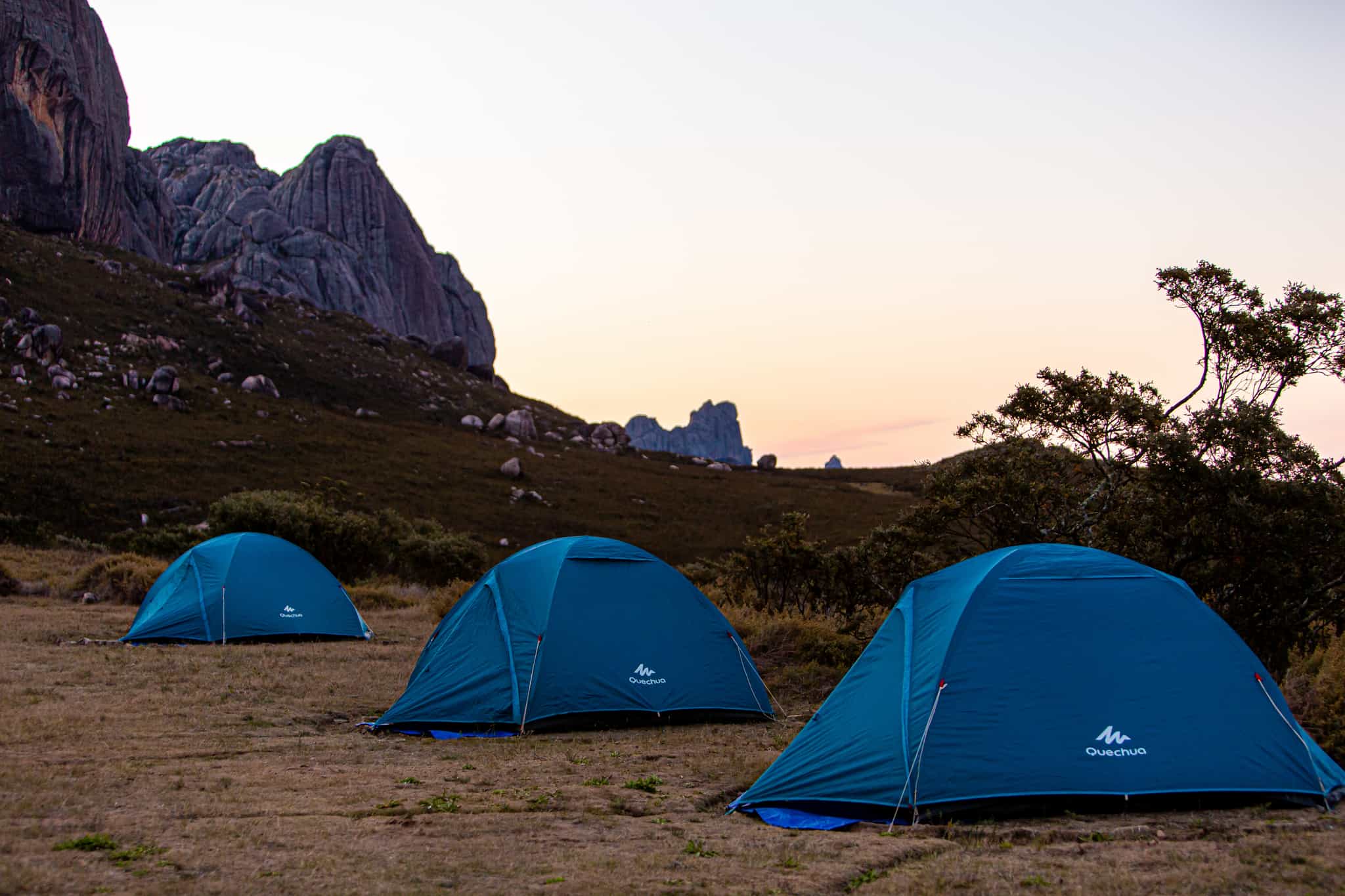
Camping
You'll spend five nights camping in Isalo and Andringitra National Parks as you tackle the treks through both parks. You'll be sleeping in twin-share dome tents with sleeping mats. The treks are fully supported by a team of porters, so your camping gear, the group cooking equipment and other facilities will be transported and organised by the porters. There will be 'bush showers' available for al fresco washing each morning.
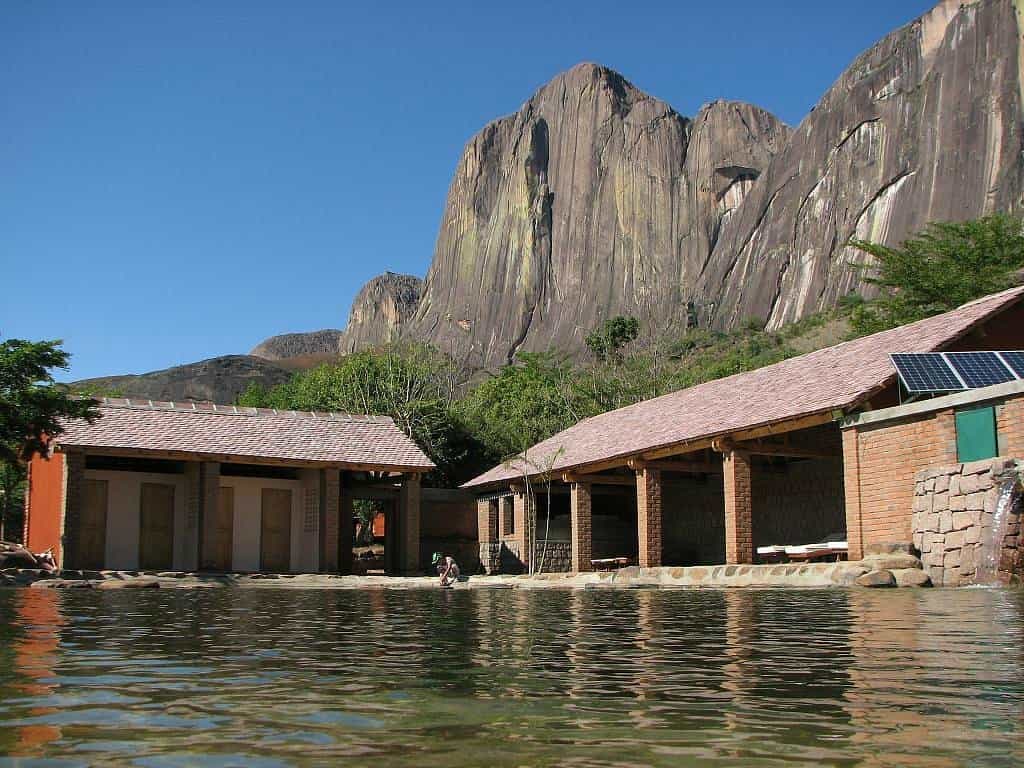
Camp Catta
Camp Catta is in a stunning location at the foot of the iconic cliff of Tsaranoro within Andringitra National Park. There is a beautiful eco-pool with incredible views over the National Park to cool off in. You'll stay in simple but clean twin-share bungalows with private toilet facilities for two nights.
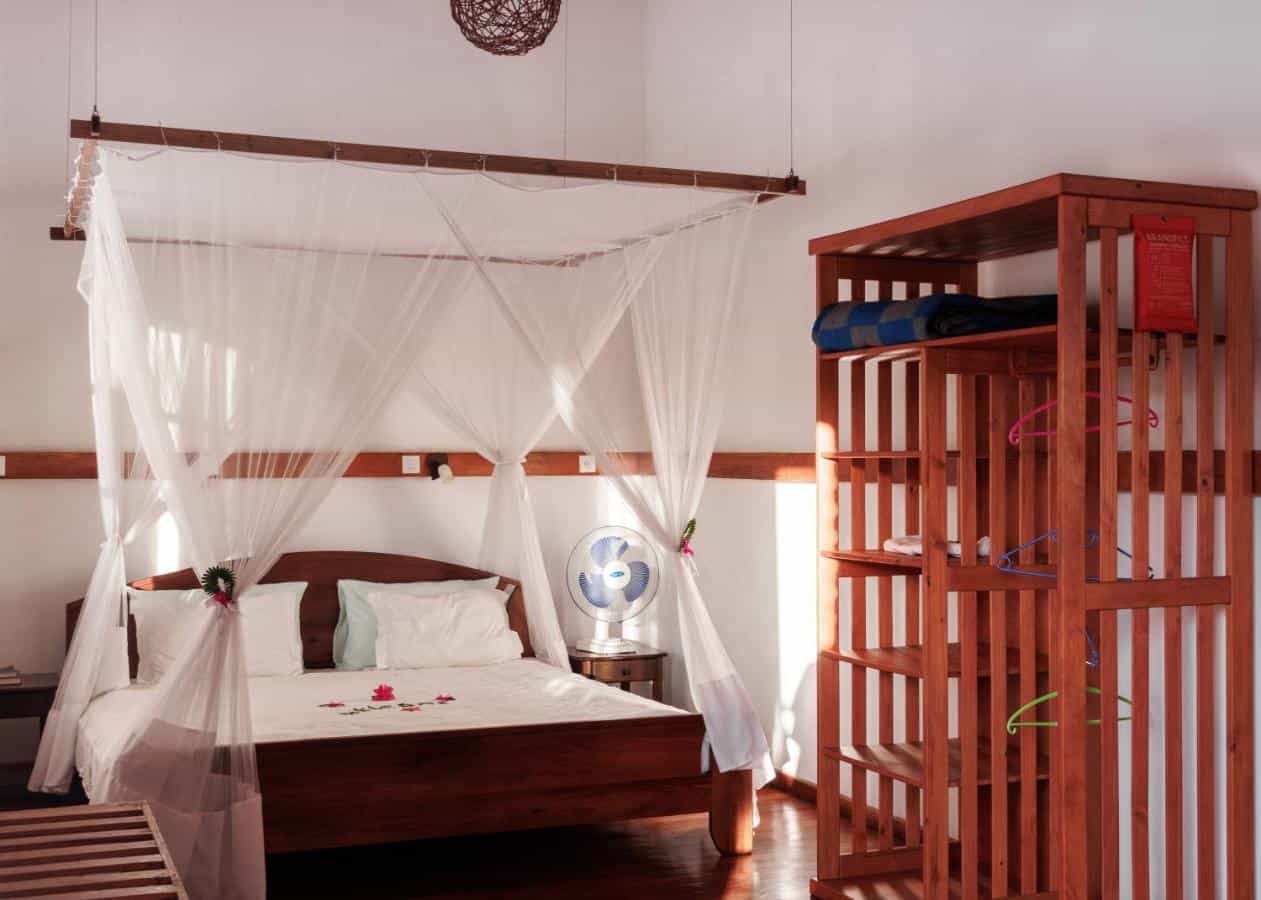
Fianarantsoa
During your journey from Andringitra all the way back to Antananarivo you'll overnight at Hotel Ambalakely near Fianarantsoa. The hotel has Scandinavian roots, reflected in the fresh decor. You'll stay in twin-share rooms with ensuite bathrooms.
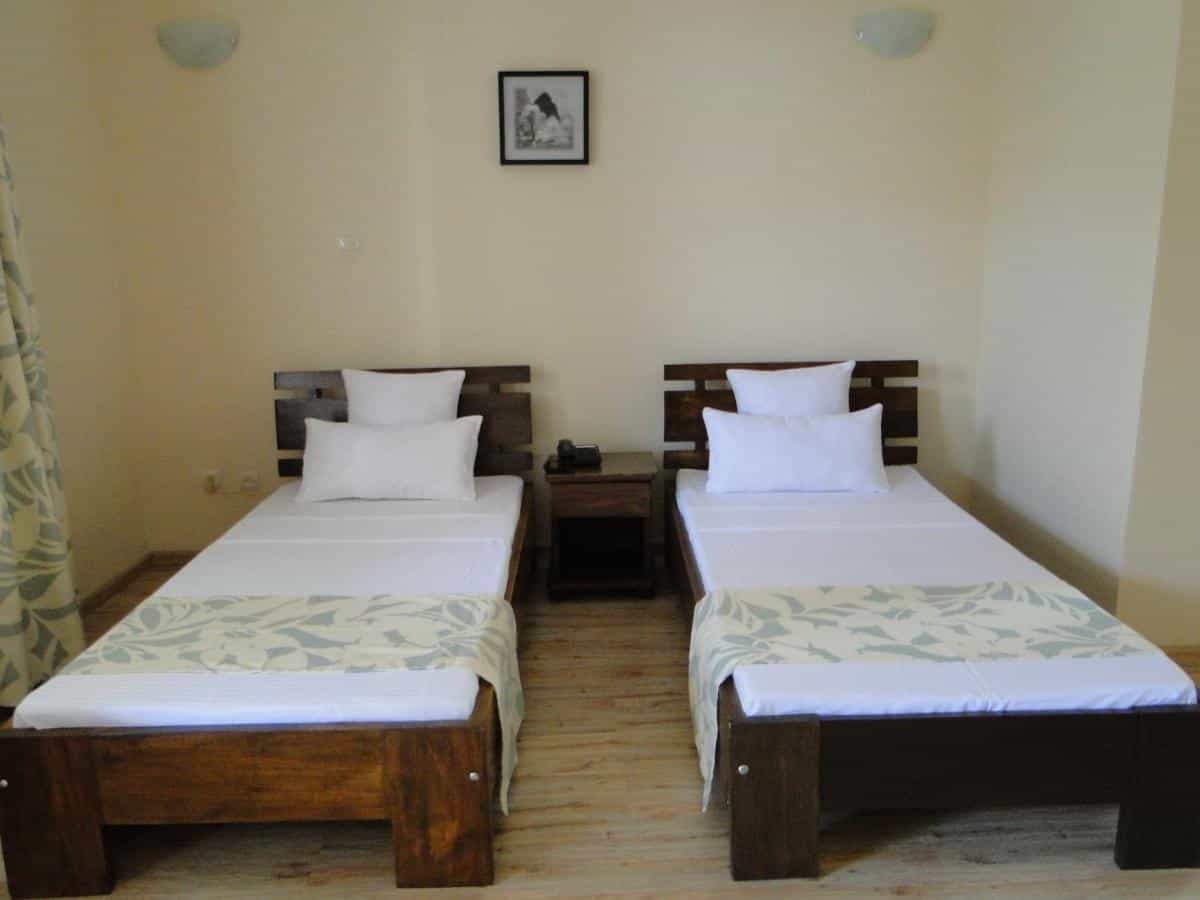
Antsirabe
In Madagascar's third-biggest city – Antsirabe – you'll overnight at Hotel H1 Antsirabe, a quaint hotel with a garden, a terrace and a restaurant. You'll stay in twin-share rooms with ensuite bathrooms.
Upgrades
For solo travellers looking for their own space, an optional private room and tent can be booked throughout the trip for an extra charge, see Optional Extras. Please request this at the time of booking (this is subject to availability).
This trip has been rated as Challenging
This is a challenging trek for many reasons – the distances are plentiful, and cross areas which don't always have a marked trail. The National Parks are very remote and the sense of being out in the wilderness is wonderful, but you'll need to possess a love for being in remote places with limited comforts. The heat can play a factor in this part of the world, though there are fantastic swimming spots to cool down at various points in the trip. In Andringitra, the hiking is slightly more challenging (Day 7 and 8 in particular). The elevation gain required to get to Pic Boby is also significant; however, most people with average fitness and some hiking experience can reach the summit and at 2600m there shouldn't be any issues with the altitude.
There is one day of cycling towards the end of the trip. It is mostly off-road which is done on mountain bikes so the terrain can be a bit bumpy and uneven. It would be useful to have some experience riding off road tracks/away from tarmac however no technical skills are required, just some strong legs and a sense of adventure!
The best way to prepare for this trip is to get out walking in the hills at home and try to mimic the daily distance and elevations you will encounter. We’d recommend trying to get in at least a couple of back to back days over weekends in the build up to the trip. This will also provide a chance to test out kit, footwear and all important snack choices! General cardio, strength and flexibility programs can also help build your fitness and preparedness for hiking in the mountains, it’s best to begin preparations at least 8-12 weeks prior to your trip. The fitter and more prepared you are, the more you will enjoy this trip.
What will I need to carry?
You'll need to have a mid-size trekking pack to carry various items during the trek, namely water, camera/phone, water purification, suncream and additional layers for sun protection, swimwear and travel towel for the wild swim spots. Your main pack will be transported during the treks by the team of porters.
Isalo National Park is located in the southwestern part of Madagascar where from April to December is the dry season, so expect minimal rainfall or none at all. Temperatures will range from 20°C (68°F) to 25°C (77°F) during the day; nights can be colder, with temperatures dropping to around 10°C (50°F).
November to December is the transition period between the dry season and the wet season. Temperatures can rise slightly, reaching up to 30°C (86°F) during the day. Showers and thunderstorms become more frequent, and the landscape starts to become greener.
Andringitra National Park is located in the southeastern part of Madagascar, and its climate is influenced by the nearby Indian Ocean which makes the temperatures slightly cooler on average than those listed above for Isalo. Before the summit of Pic Boby, you'll be sleeping at close to 2000m above sea level, so the night there can be significantly colder than all other nights on the trip.



Madgascar is absolutely stunning
What a fantastic trip! Madagascar is a stunning country, and the itinerary put together by MBA crams a lot of amazing sights into 12 days. Madagascar is a huge island, so it's impossible to see everything in that time, but you leave feeling like you've really seen a great portion of it. Our tour was expertly led by Bruno, who was amazing throughout. His attention to detail was fantastic, giving us lots of insight into the life and history of the people of Madagascar, whilst also keeping the trip running perfectly, making sure places were aware of our arrival in advance, sending meal booking ahead of time in cases where we might be arriving late, and just generally looking after the group and our varying needs. I would highly recommend this trip to anyone. The hikes are of a reasonable length, and the warmth and sun certainly make them a good challenge, but not too technical, so anyone with a good level of fitness would be fine. As many have said, the drives are long, and the roads not great, but the scenery along the way is amazing, and there are plenty of stops to break things up. The food was all very good, and generally options available for those with dietary requirements. The camps as you might expect are very basic, but only spend 2 then 3 nights camping broken up by a stay in a lodge, and the porter team do an incredible job catering at these very remote camps! My only two points of feedback for possible improvement would be:
- it would be great if there is time somewhere to fit in a quick visit to one of the other reserve areas with other species of lemur, possibly on the final driving day, it was suggested there might have been a park somewhere not far from the road you drive back to Tana on.
- The bike ride on the final day is probably a little more challenging than some of us were expecting, particularly if it's been a while since you've ridden (I personally found it much tougher than any of the hiking as it had been a number of years since I last rode a bike!). It is closer to mountain biking than road biking, and some of the terrain is pretty rough. Bruno actually took a few members of the group back a shorter route, leaving the rest of us to carry on with just the local guide, who often ended up being quite far in front, and probably didn't check up on us as frequently as he should have. Might be good to make sure this is reflected, and do a bit of checking before the ride starts properly that everyone is comfortable on the bikes, as you are thrown in the deep end a bit.



Overall, this was a great
Overall, this was a great trip! Organization was flawless and the guide and support crew were excellent.
My highlights were the Isalo national park and spotting Lemurs in Camp Catta and Anja Park.
Keep in mind that the focus of this trip are the Isalo and Andringitra parks, so days 2, 3, 10, 11, 12 are basically travel days with only minor activities (though the visit of Anja Park was very nice).
The days were often very long, arriving at hotels after dark and leaving again early in the morning (which was a pity, as most of the hotels were really nice). The only exception was the day at Camp Catta between the two treks.
I think this trip would be even better if it were 1-2 days longer, it would allow to split the driving across additional days and we passed at least two national parks that we didn't visit.
Fantastic trip in a beautiful
Fantastic trip in a beautiful country!
What a fantastic adventure with
What a fantastic adventure with an amazing bunch of people.
Madagascar is generally off the beaten track, but this trip really gets you into the heart of the country, away from what tourists there are. Beautifully located campsites, daily swim spots and stunning unique scenery that constantly changes.
We were lucky enough to have Bruno as our guide. A true professional, positive and informative, he always read the mood of the group perfectly and made adjustments to the itinerary as and when weather conditions or we needed them. Prime example being when, after 2 nights of being caught in thunderstorms, he switched our last night camping to a gite. We were treated to a Sunday football match, a warm fire, rum, music and dancing with our absolutely brilliant support team.
The food on this trip really is fantastic. I was certainly not expecting to eat fois gras, zebu tartar, zebu steak, and delicious stews in Madagascar…
Be prepared for some long and bumpy road journeys. There’s no way around them. It’s a poor country and the roads are dreadful. However there’s lots to see out of the window, Bruno has a wealth of knowledge to share and we made plenty of stops along the way.
This trip is quite full on so I was very happy to have booked a few days in Nosy Komba at the end. Inside tip: there’s an international airport on Nosy Be, so you can fly home from there. Nosy komba is beautiful and super safe. The guesthouses will arrange a boat transfer from the airport for you!
Bucket List Trip
I didn’t realize this was a bucket list trip until being in the mountains. The treks, views, camps and people surpassed all expectations. The nature is simply stunning. Such a unique experience. Huge credit to our guide Bruno who was very well organized, informative and friendly. Highly recommend being fit, patient and adaptable for this trip. Madagascar is difficult to traverse and amenities along the way will be basic. If you like the outdoors and want to experience something different, this trip is for you.





Epic adventure
This one really packs a punch! Madagascar is unique and, although it’s not necessarily an easy trip (more because of the logistics than the hiking), it is seriously worth it. If you’re reading this and wondering if you should book it - you should!! We saw so many stunning and different landscapes that the bus journeys really didn’t feel too high a price to pay for all the life we saw along the way. Lots of opportunities to swim in incredible spots, an array of wildlife, and epic hiking. Bruno, the porters, our wonderful chef (huge crew!) took such good care of us that I often felt spoilt. Bruno really is the best guide I’ve ever had - constantly narrating everything that we saw and made managing the logistics look effortless when I’m certain it was not! He works magic and reads the group so well - pulled it out of the bag to get us into a gite for one of the best nights of the trip when we were flailing because of the wet weather. Fab group as always and just an all round brilliant experience. Thank you Bruno and MBA for another awesome adventure!






What a trip!
Bruno, Bruno, Bruno! What would we do without you. We had an incredible trip touring up Madagascar, and everything was taken care of by our guide Bruno. The bus journeys were long, but broken up by market stops, and Brunos very knowledgable insights. The camp sites on the two treks were beautifully chosen, and were well away from the usual tourist routes with beautiful scenery and even a crystal clear waterfall pool at one of them. We had rain for 3 of the nights at Andringitra National Park, which did come as a little bit of a surprise, but was very quickly resolved by a warm fire, and a 3 course meal served by our cook. We then quite quickly forgot about the rain whilst sharing a bottle of rum and joining in with the porters Malagasy songs around the campfire. Given some of us started to run out of dry kit by the 3rd day, our guide quickly altered the schedule by replacing our 3rd night with a stay in a Gite (small guesthouse, surprisingly clean!) which was welcomed by all. Overall, an incredible unforgettable trip which overdelivered on all accounts. Madagascar is a beautiful country, and we couldn’t’t have asked for a more knowledgable attentive guide to lead us on our tour.




Remote trails of Madagascar
Just finished an epic tour of Madagascar hosted by our local guide Bruno. Flying from the capital to the south we started our tour with a 3 day hike in a national park followed but another 4 day hike in a national park further north. The tour incorporates a lot of travel time on the road which is unavoidable as the roads are so poor. However, the views out the window are interesting as you observe the mix between urban and country life and our guide Bruno proved an excellent source of information on the culture and history we could see, which helped the time pass easily. The trekking is not too difficult as the paths are well maintained but the days can sometimes be long. Madagascar is a fascinating country but sometimes unpredictable and Bruno proved his worth yet again by adapting my our tour in places when needed. We were lucky enough to swap one day camping to staying a gite when the weather was bad and we got to watch a local league football match as a result! The highlight for me was spending the 2 evenings in the thatched hut on the second trek with all the porters and guides drinking rum, singing and dancing - it was so much fun to enjoy that time together! Finally, apart from Bruno who was excellent, our chef who stayed with us throughout the trekking deserves a special mention- producing us 3 delicious meals a day under those circumstances is truly an amazing skill, even the social diets were well accounted for. Well organised, well guided with great activities and food- can’t recommend enough!


Epic trip! Would absolutely recommend
This trip has been truly unforgettable. A wonderful variety of trekking, wildlife (my favourite!) and culture. Salohy our guide was amazing, she was always smiling and nothing was ever too much. We had a great group dynamic and it was just like being away with friends. Just make sure you have enough layers to keep you warm when camping near pic bobby!









An incredible adventure in an amazing country!
Some unbelievable trekking through Isalo and Andringitra National Park’s. Summiting Pic Boby and swimming in natural pools were highlights! Amazing varied landscapes and scenery with an abundance of wildlife too. There is a decent amount of driving involved per the itinerary but the trekking and cultural experiences are well worth it. Bruno was an amazing lead guide, constantly taking the time to explain things to give us a deeper insight into Malagasy culture and way of living, particularly as we walked through remote villages. The food was also incredible and substantial (zebu steak on an open fire while camping was a highlight!) Would highly recommend this tour.







So much more than expected with stunning hikes & wildlife galore!
Where to start… do not be put off by the length of some of the drives. They pass relatively quickly as you watch the scenery change whilst passing towns and villages. They are also completely worth it for the x2 hiking locations you visit! Our guide Bruno was fantastic, always happy to help and having been doing tours for the last 20yrs, knew people in nearly every town we stopped in to get information, demonstrations or just have a friendly chat. He also went above and beyond to ensure the trip ran as smoothly as possible. The food at all points was top notch! Zebu rib steak whilst camping in the mountains, to Malagasy stew in a rural town, all amazing! 3 tips if you do this trip,
- Bring thermals. We woke to frost on the ground the first night at 2000m after hiking in 30 degree weather the day before.
- If you hire a sleeping bag. You won’t get a 3 season, I slept in a 2 season at best with shorts and had to wake at 2am to change into more clothing and thermals before seeing the frost.
- Embrace it all! The country is amazing and it is what you make of it. We will be recommending this trip to anyone who wants an adventure where you will not see many other tourists, experience a unique culture and see some amazing wildlife at the same time.
Rewarding adventure with great local knowledge
I think the MBA description is accurate (except ref 3 season sleeping bag, see below).
The countryside & views were diverse & beautiful. Despite this tour not being hugely focused on wildlife, we saw lots of chameleons, lizards, lemurs and even some snakes. I'm pleased I took my small binoculars (and they were fun for some of the kids we met). I loved all the opportunities for swimming, even when the water was properly chilly. The hiking was as described - some long days, sometimes steep and precarious, with really varied landscapes. All of it is on paths that already exist, but not overused and I think we only saw one other group in our time in both parks. It definitely met my expectations.
Barnabas was an excellent guide, very in tune with what us visitors might find interesting and very aware of individual needs. The National Park guides were also good - but not necessarily strong English - speaking French is helpful if you want to communicate more widely. We also really appreciated the excellent logistics team - Olivia, Fetra & Ranto - tents were clean & perfectly pitched, the food was tasty & plentiful AND they found the energy to have fun with us. Whenever we reached camp, they were already there and post hike tea & nibbles were provided.
The roads ARE bad and the drives ARE long. Camping in Andringitra IS cold, I agree with another reviewer who said take thermals & 4 season sleeping bag - it was so cold our swimming stuff froze solid overnight and had to be defrosted over the breakfast cooking fire. We really felt that night for the logistics team & porters who don't have access to clothes/kit that we might take for granted. I took a thermarest but didn't need it as the foam sleeping mattress was good.
Prepare your bag so that at the end of Isalo hiking you can quickly access you gear for Andringitra. We were not actually in a camp to execute this 'manoeuvre'. This is the evening that is spent in Camp Katta
At no point were we asked to use our chemicals or filters for water - it was portered even up to the Pic Boby camp.
I found all the accommodation very comfortable except the room in Antsirabe which was just a bit tired and cold and lacking in any atmosphere. I'm being fussy, but it just wasn't as good as the others.
I felt that my belonging and myself were safe - I found Malagasy people friendly & respectful, but particularly so in the countryside. (I spent a further 2 weeks doing solo travel). Many people are as interested in you as you are in them.
A very enjoyable trip of great diversity
Whatever you're expecting from this trip it'l probably provide something rather different. There is such a diversity in temperature, terrain, people, flora and fauna - it's best to leave your expectations behind and just enjoy it for what it is. Firstly a note on the travel - when they say Madagascar's roads are bad believe it. Road travel is slow due to the size and frequency of potholes, expect to travel no more than 100 miles a day even on the main roads (route national). Temperatures - it was early winter when we visited (late May) and we encountered temperatures between 27-28 degrees during the day down to 3 or 4 degrees at night in our high camp. Best to pack a set of thermals and take a 4 seasons sleeping bag (not 3 seasons as suggested) - we woke up to frost on the ground one morning. The people are lovely and so, so friendly - we didn't encounter any of the threat that is sometimes present when travelling in Africa. Our guide, Barnabas, was superb as were all the local guides, the porters and logistics crew and our longsuffering driver (see my comment on the roads above). We quickly reached the conclusion that the plants in Madagascar were more dangerous that the animals - no poisonous snakes and no predators bigger than a Fossa (google it). The landscapes range from the desert environment near Tulear to the sub alpine environments of Isalo and Andringitra and everything in between. The currency is crazy - I've never taken half a million of anything out of a cash machine before and spent it all and more in less than two weeks. About half the population live in Tana (the capital) so it's a real culture shock when the hustle and bustle of Tana hits you after days in the wilderness. If you want something that you know you've enjoyed tremendously but can't quite put your finger on why this is probably the trip for you.
Fantastic trip, amazing guides
Really loved this trip! Madagascar is such a beautiful country and Barnabas and all the local guides were fantastic. There are some long drives but they are still beautiful and they did take pretty much exactly the length of time it says in the description. I think it helped that our group was smaller than the previous group so if you can try to get a smaller group! Madagascar feels very undiscovered in areas so really worth the visit. Was really great to see lots of lemurs and iguanas too! Remember to take lots of warm layers and a 4 season sleeping bag - the nights get cold when you’re camping at 2k metres.








Madagascar seems a country of contrast and extremes
Trekking through majestic rural landscapes and vibrant capital cities like Fianarantsoa, Antsirabe and Antananarivo, I witnessed firsthand the country's extraordinary beauty and deep-seated poverty. There exists a paradox of a land rich in natural wonders, beauty and resources yet challenged by economic hardship and missed opportunities. I admire the resilience of its people and hope sustainable development delivers them a brighter future. Our guide, Barnabas became so much more over our journey. I am grateful to call him a friend. Along with his support guides including Philibert, porters and logistics team, they delivered us not only safe passage but also an insight into the complexities of Malagasy life, the awesome natural beauty and its rich history. Our group of travelers became close as we shared this unique experience. I hope to stay in touch over the coming years. In closing, Madagascar is beautiful but it was also an opportunity for me to ground myself with a richer understanding and appreciation. Thank you Much Better Adventures for presenting this opportunity.




I really enjoyed this trip
I really enjoyed this trip and thought it was an excellent way to explore the south of Madagascar.
Barnabus was one of the best guides I've had. He was incredibly knowledgeable about all aspects of life in Madagascar and very open to sharing with our group. As such, we were able to learn a lot about the fascinating culture and traditions of Malagasy people as well as seeing the beautiful landscapes and wildlife.
The hiking is definitely made challenging by the heat if you are not used to it as there isn't a lot of tree cover for shade but the views are well worth the effort.
I can see that MBA have since amended some of the descriptions in the itinerary to better reflect the trip which is good. However, I still think the current itinerary downplays the amount of driving involved in the trip. Day 3 involved roughly 7 hours on the bus to get to the place where we started our hike. Day 10 involved 10 hours on the bus rather than the 6 indicated on the itinerary.
These rides are still a great way to see and learn about Madagascar as the views are great and Barnabus was always sharing information about the places we were passing through and answering any questions the group had but I think it's important to note just in case this is a deal breaker for anyone.
Overall, I would definitely recommend the trip to others.
Many thanks for this constructive feedback. We're glad you really enjoyed this trip and would definitely recommend it to others!
We have now updated the itinerary to better reflect the driving times on this trip, especially with regards to Day 3 and Day 10 as you suggest. Like you say, the drives are a necessary part and a great way to see the country, but it's important for us to set correct expectations from the start!
Ruth MBA Operations Team
Absolutely amazing
Had a wonderful time on this trip. It was a fantastic balance of adventure and hiking in astounding nature with an exploration of a different culture.
Madagascar is a very poor country and inevitably unexpected challenges arise. For example, one of our flights was cancelled. But the local guides took care of everything and organised alternatives so it was always stress free for us.
Our guides were incredibly knowledgable helpful and keen to share their country with us. I'd highly recommend this trip to anyone who's decently fit.
Fantastic adventure across Madagascar
Very pleased to have gone on this trip!! Our guide Barnabas was excellent who always offered up interesting insights into life in Madagascar and talked through the incredible landscapes, culture and wildlife that Madagascar has to offer. We were lucky enough to see a wide range of lemurs, which was amazing as well as spotting lots of chameleons.
I really enjoyed the hikes; views were amazing but worth noting that they were quite challenging due to the elevation and heat. The bike ride I felt I could have had more detail provided before taking part as it was more mountain biking than a road cycle as the itinerary originally indicated. Barnabas was excellent at tailoring to my ability though to which I was very thankful for and was fun to try.
The drives on this trip were long due to the poor road conditions, but the scenery and people on the way made it enjoyable as well as commentary from Barnabas.
Overall I would highly recommend this trip though and for anyone to visit Madagascar. It really was an adventure I will never forget and would definitely go back to explore the Northern part of Madagascar!
Itinerary Activities
- Make your own chocolate bar at a cocoa workshop in Tana
- Guided night hike in Antsokay Arboretum to spot nocturnal wildlife
- 3 days of guided hiking through Isalo National Park
- Exploring the Tsaranoro Valley's sacred forest and visit a typical Bara village
- 3 days of guided hiking through Andringitra National Park, including a summit of Pic Boby (2658m)
- Bush walk in the Anja Park reserve to spot lemurs
- Road trip through Madagascar to Antsirabe
- Guided bike ride to explore Antsirabe and its rural surroundings
Guides
- Expert, local, English-speaking trekking guides
Accommodation
- 2 nights in a 4-star city hotel in Antananarivo (Tana)
- 5 nights camping in beautiful spots within the Isalo and Andringitra National Parks
- 2 nights in bungalows at the foot of the iconic cliff of Tsaranoro
- 3 nights in comfortable hotels and auberges as you journey through Madagascar
Meals
- All (12) substantial breakfasts
- 6 picnic lunches
- 8 traditional Malagasy dinners
Internal Flights
- An internal flight from Antananarivo to Tulear on Day 2
Transfers
- Arrival transfer from Ivato Airport in Antananarivo at any time on Day 1
- Group departure transfer to Ivato Airport in Antananarivo on Day 13
- All transfers during the trip
Porterage
- Cooks, spotters and porters for the trekking days through Isalo and Andringitra National Parks
Equipment
- Twin-share expedition tents
Permits
- Entrance fees for Isalo and Andringitra National Parks and the private reserves at Arboretum Antsokay and Anja
Our trips are hassle-free by design. We include all the activities and equipment, as well as many of the meals, so you can simply rock up with your rucksack and share the adventure with your new pals.
Travel to and from the trip
Our trips do not include flights, trains or other travel to the start point and back from the end point.
Tips
Tips are not included in the trip cost. These are entirely at your discretion but there is an expectation to tip for good service. Your guide will help with advice, however we suggest the below as a guideline per person:
- $5/£4 per day for the lead guide
- $10/£8 per trekking day for the porter team
Of course, you are free to tip more or less, and the amount should be reflective of your perception of service and quality – a tip is not compulsory and should only be given when you receive excellent service.
Personal Expenses
You know your own spending habits best, so please budget an appropriate amount for things like optional meals and drinks, shopping, optional activities, and laundry.
Meals
On this trip, 5 lunches and 3 dinners are not included. The amount to budget for these will depend on your appetite, but a guideline is €10-16 for a 3-course meal at a tourist restaurant. Lunch in a local restaurant is approximately €3-4 for a main course of rice with meat or fish.
Travel insurance
Travel insurance is compulsory for all of our adventures and you are required to provide your policy information before departing. Your insurance should include adequate protection for overseas medical treatment, evacuation/repatriation, your baggage and equipment and the specific activities involved on your adventure. We also strongly recommend it includes cancellation and curtailment insurance, should you be unable to join your trip for specific reasons such as illness. Our recommended travel insurance provider is Campbell Irvine, as their insurance offers all of the above.
Visas
Visa requirements often change, and you are responsible for obtaining any required visas for this trip. Please check with your nearest embassy or consulate for up-to-date advice.
What's included?
- Twin-share expedition dome tents
- Sleeping mats
What's available to hire?
- Trekking bag
- Sleeping bag
What do I need to bring?
BAGS
- Soft overnight duffel bag or rucksack
- Trekking pack (25-35 litres)
CLOTHES
- Lightweight waterproof jacket
- Fleece jacket or similar, for colder evenings
- Buff or neckscarf
- Lightweight trousers/shorts/skirts
- Long sleeved thin shirts for sun protection
- T-shirts
- Underwear and socks
- Swimwear
- Sunglasses
- Sunhat
- Sleepwear (layers or thermals will be useful as it can get cool at night whilst camping)
- Hiking boots (worn-in)
- Sandals or trainers for around camp
SLEEPING
- Cotton or silk sleeping bag liner
- Sleeping bag (3 or 4 season as it gets cool at night whilst camping)
- Travel pillow or pillowcase
- Thermarest or sleeping mat if you wish to use your own, if not then a sleeping mat will be provided
OTHER
- Universal travel plug adapter
- Power bank or solar charger
- Passports (and visas)
- Travel insurance documents
- Ear plugs
- Insect repellent
- Suncream
- Personal first-aid kit (inc. blister treatment)
- Anti-malarial medication
- Personal items (biodegradable toiletries, sanitary wear etc)
- Toilet kit (toilet paper, biodegradable bags to carry paper out to dispose of)
- Quick-dry towel
- Alcohol hand-gel
- Headtorch or torch
- Reusable water bottle - aim to carry a minimum of 2 litres, in 2 bottles or 1 bottle and a bladder
- Biodegradable wet-wipes
- Energy bars and snacks - read our article on Best Hiking Snacks
- Water purification tablets/treatment system - read our article on the Best Water Filters for Adventurers This is optional as filtered water will be provided.
Single room at Urban Grand Hotel (post trip)
Payable Before Departure
Single room at Urban Grand Hotel (post trip)
… Per night
Single/Twin/Double room at San Cristobal Hotel (pre trip)
Payable Before Departure
Single/Twin/Double room at San Cristobal Hotel (pre trip)
… Per night
Twin/double room at Urban Grand Hotel (post trip)
Payable Before Departure
Twin/double room at Urban Grand Hotel (post trip)
… Per night
Optional Private Room & Tent Upgrade
Payable Before Departure
Optional Private Room & Tent Upgrade
…
Private airport transfer - each way (1-4 people)
Payable Before Departure
Private airport transfer - each way (1-4 people)
…
We partner with the World Land Trust to ensure this trip achieves Net-Zero emissions. We also support their Buy an Acre programme, helping local communities to buy and protect natural habitats in perpetuity.
What's the number?
It works out on average at 323kg of CO2 emissions per person, including all local transport, accommodation, food, activities, guides, staff and office operations.
The only thing it doesn’t include right now is flights and travel to the destination. We do make an overall estimate across all our customers separately, but as we don’t book flights, have customers from all corners of the world, and no way of reliably knowing their travel plans, we simply can’t include an individual number in the figure on display here. We’ve got a goal to fix that, so that when you book, there is a way to measure and mitigate the carbon emitted by your flight too.
But what does the number mean?
Yep, hard to picture eh? To give you an idea:
- Driving 1000 miles/1609km would be approximately 281kg of CO2 in an average car (or 140.5kg per person, if there were two of you in it).
- A return economy class flight between London and New York would be approximately 1619kg (1.66 tonnes) per person.
- 10 trees in a temperate forest are estimated to remove approximately 250kg of CO2 from the air in a period of 5-10 years.
What are we doing about it?
Our trips are relatively low-carbon by design, and we're working with all our hosts to develop long term carbon reduction plans. We partner with the World Land Trust to ensure this trip achieves Net-Zero emissions. We also support their Buy an Acre programme, helping local communities to buy and protect natural habitats in perpetuity, ensuring the protection of the reserve and its wildlife.
Want to know more?
Amazingly, no international travel company has ever publicly published their carbon measurements before, as far as we know. We believe that must change, quickly. So we’re openly sharing the method we used in the hope that other companies will be able to more easily follow suit and build on what we've done so far. You'll find it all here.
The Malagasy Ariary is the local currency of Madagascar and cash is the most common form of payment. You are advised not to carry large amounts of cash with you at one time. There are ATMs in 6 locations visited on this trip if you need to withdraw extra cash as you go. While it is often easier to withdraw from an ATM than to change money, if you wish to do so then the Euro is the most widely accepted foreign currency but USD and GBP can also be changed.
It is never safe to drink the water in Madagascar, so all drinking water needs to be purified. Your host will travel with large containers of water throughout the trip, while the porters will ensure that water is carried through each day of the treks. However, please do bring water purification tablets or a filtration system. We recommend having a read of our Guide to the Best Water Filters for Adventurers.
Yes, you can store excess luggage at your host's base in Antananarivo to be collected when you return to the capital.
This trip operates in areas where daytime temperatures can reach extreme highs, where limited shade and high humidity can also be a factor. These conditions can affect physical performance and increase the risk of dehydration or heat-related illness. Your guide will adjust the pace and monitor the group closely, but hydration, proper clothing, and sun protection are essential.
Before travelling, consider your ability to be active in high temperatures and consult a medical professional if you have concerns, especially if you have any cardiovascular or heat-sensitive conditions. Arriving a day or two prior to the trip may help you adjust gradually to the heat.
Sure can! Over 70% of our travellers travel solo, it’s a great way to meet like-minded people.
Our team of Adventure Hunters co-create exclusive adventures which are run by highly vetted, specialist hosts. The trip is run by our trusted host partner in the destination. We only work with independent, local, in-destination experts who know the very best places to explore and how to stay safe. Read more information about the local teams we partner with. You’ll be introduced to the host straight after making a booking via the Much Better Adventures platform.
Much Better Adventures refer to the UK Government’s official travel advice when designing trips and monitoring trip operations. We recommend that all customers are familiar with the practical information provided on the Government’s FCDO website, where current travel advice can be found by searching for the applicable destination(s).
For customers joining this trip from other international destinations – please also read the official travel advice applicable to your country of residence/origin, as this may differ.
We recommend checking out the country-specific information and also talking to a travel nurse.
We automatically convert prices from the local currency that a host receives to your chosen currency. We update our exchange rates on a daily basis so this does mean that prices displayed on the site are subject to currency fluctuations, which is why you may see them change over time.
If you wish to change the currency you pay in, head to the bottom of the page.
All of our group adventures are specially designed for adults to enjoy as we want these adventures to bring together outdoorsy people who are truly like-minded. You must be over 18 to join one of our trips.
You're always in good company on one of our adventures.
Our trips are typically made up of a mixture of solo travellers and small groups of 2 or 3 friends, with most in their 30s-50s.
Our sociable adventures are solo-friendly by design and naturally attract outdoorsy people with a shared mindset; a love for adventure, a desire to push themselves and meet awesome, like-minded people along the way.
It’s this camaraderie that has so often turned a great adventure into a life-changing one.
Don't just take our word for it:
- 95% of people rate the group dynamics on our trips 5/5
- 90% of people recommend joining a trip to make new friends
- 75% of people have met people on our trips that they would now consider friends
See here for more info about the Much Better Adventures tribe.
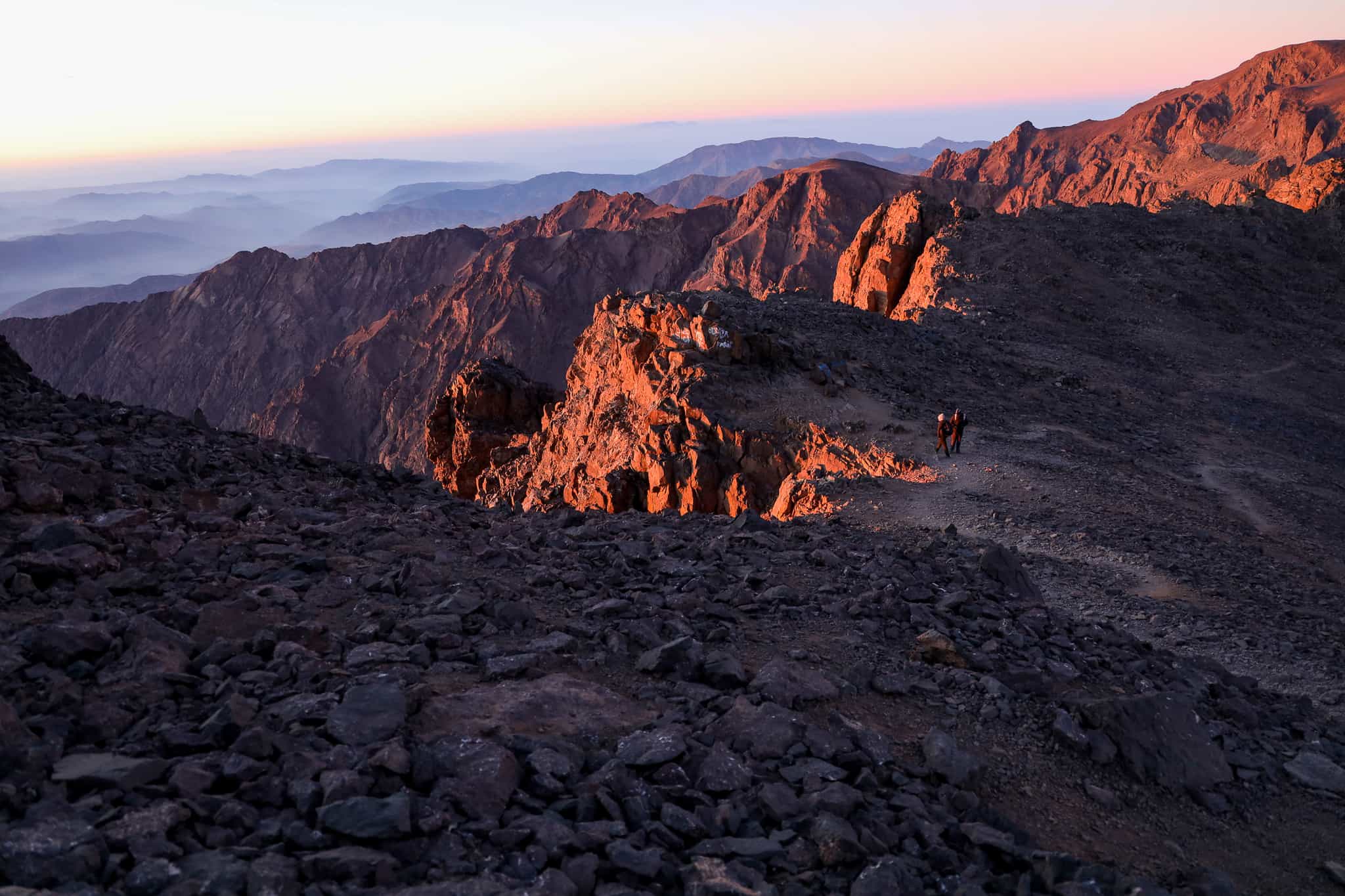
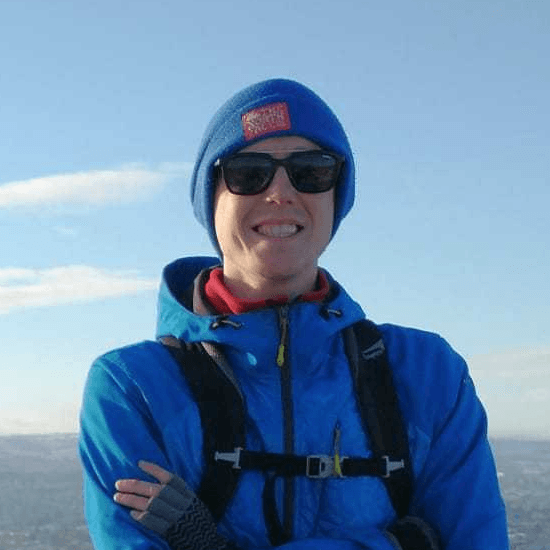
Need help finding flights?
From logistics and how to get there, to fitness, group dynamic and trip difficulty, Rory and his team of friendly experts are on hand to help.
We've got your back
Guaranteed to run
All Much Better Adventures trips are now guaranteed to run. Once you’ve booked your spot you can immediately make your travel arrangements, no uncertainty, no hanging about (excludes 'request to book' departures). Full details
Flexible payments
Secure your spot with the minimum deposit and pay off the remaining balance in as many instalments as you like, with no interest or fees. Full details
Happiness Guarantee
We’re so confident you’ll have an amazing time we’ll put our money on it. Full details
Full financial protection
To give you complete peace of mind Much Better Adventures is backed by ABTOT, ABTA and ATOL memberships. Full details
Tried & Trusted
Much Better Adventures is rated ‘Excellent’ on Trustpilot with over 1000 verified trip reviews averaging 4.8/5.
Connect before you go
You'll be invited to join a WhatsApp group to get to know each other before your big adventure together. Full details
DEPARTURE DATES
Sunday 7th September 2025
to Friday 19th September 2025
